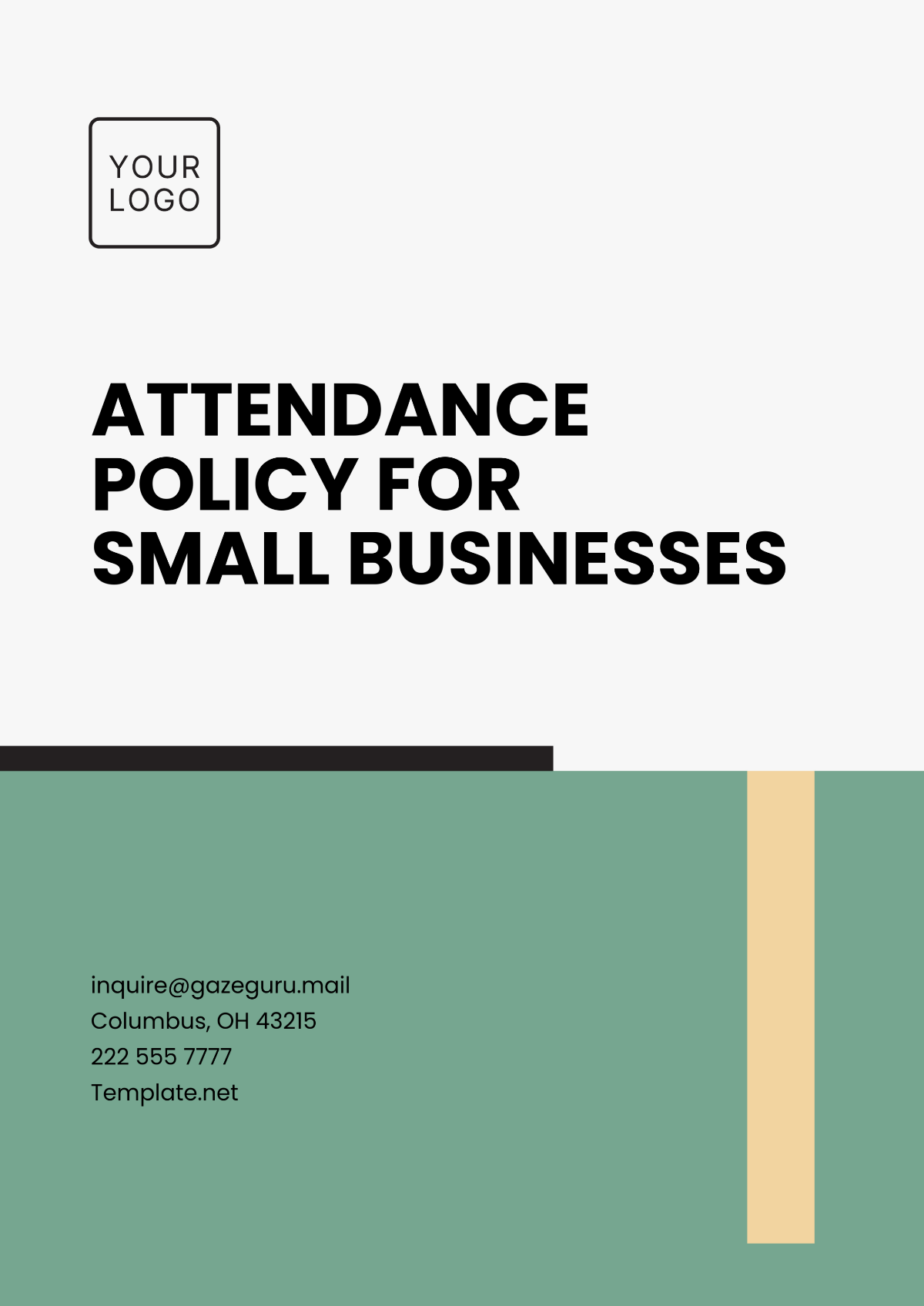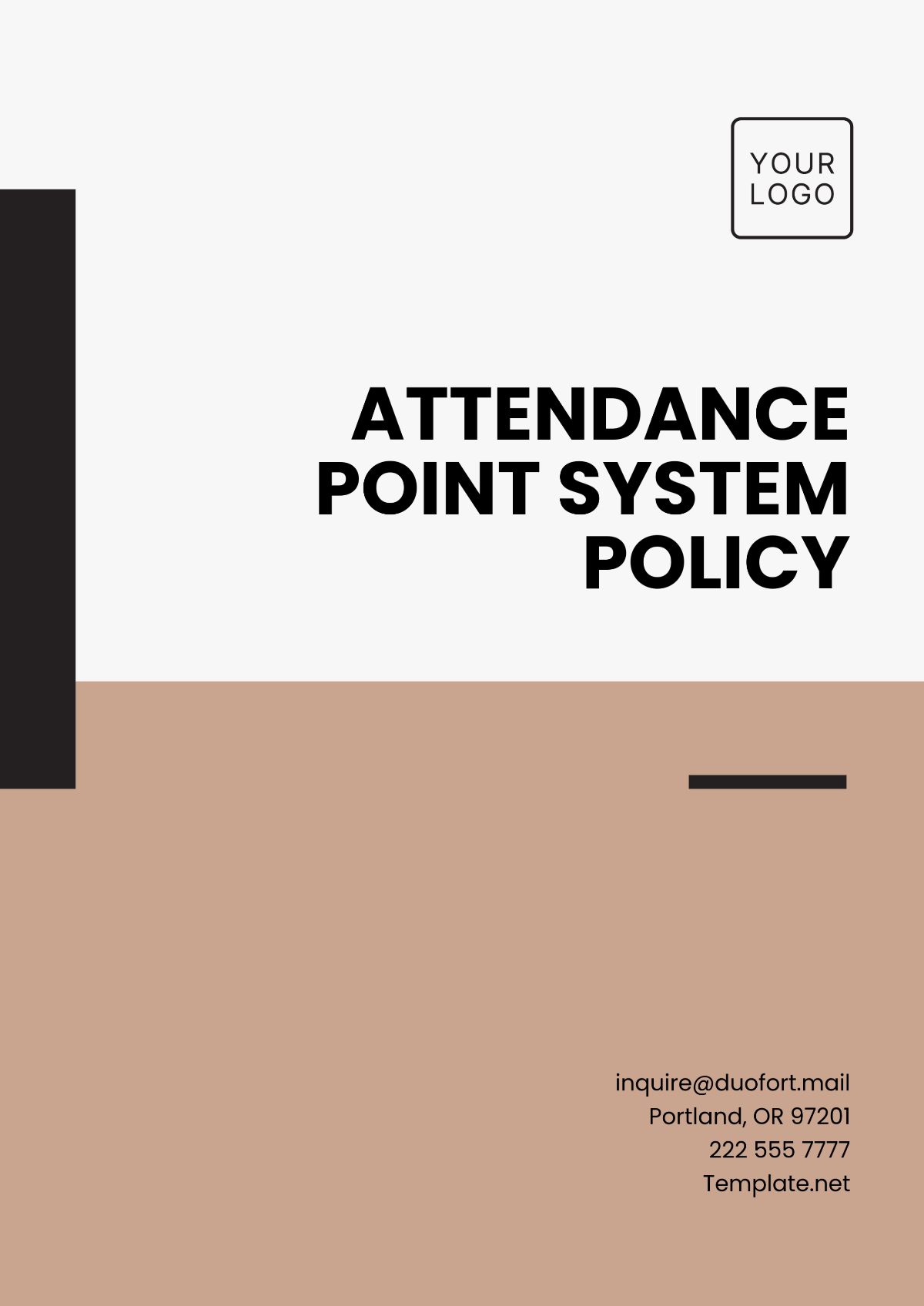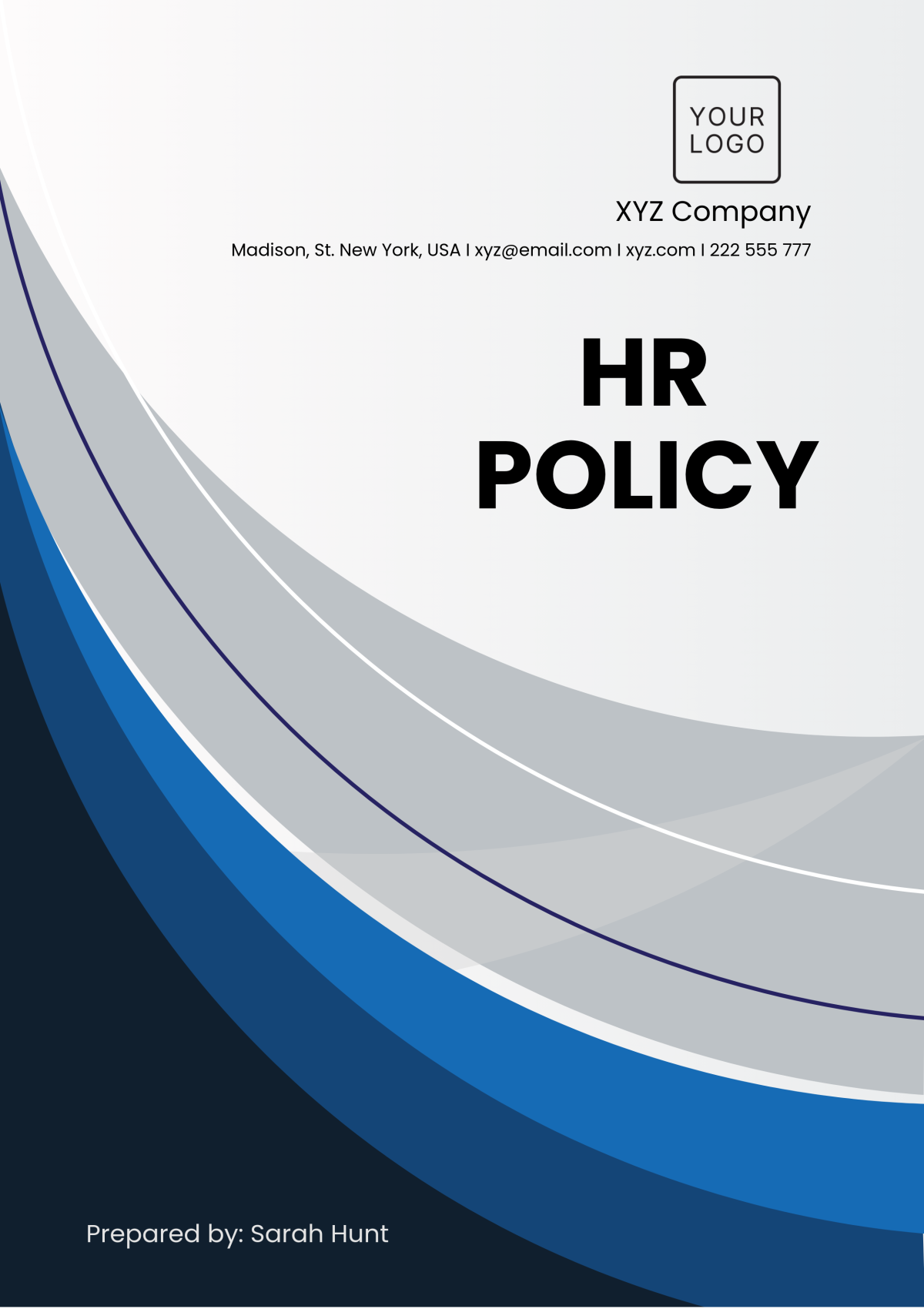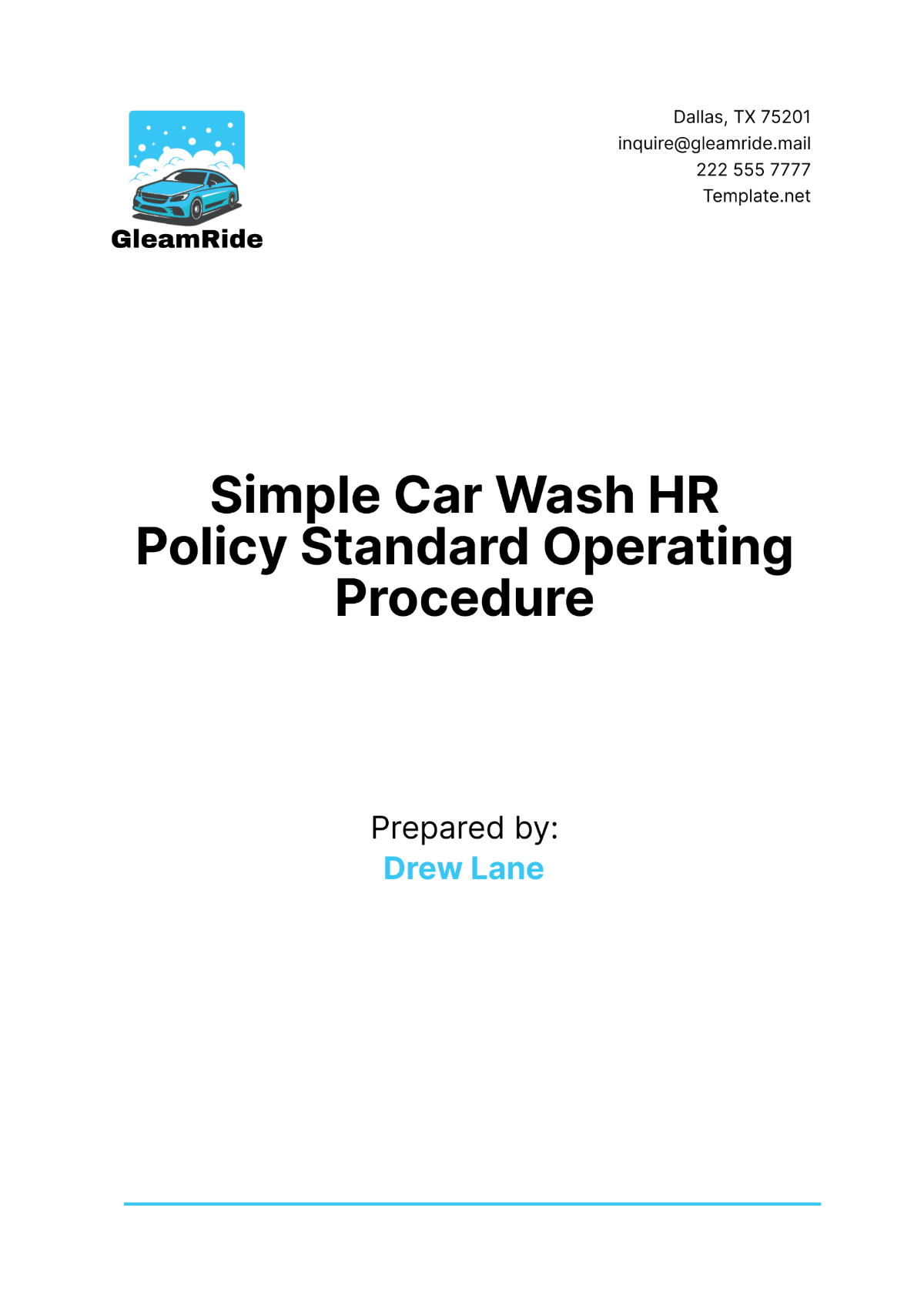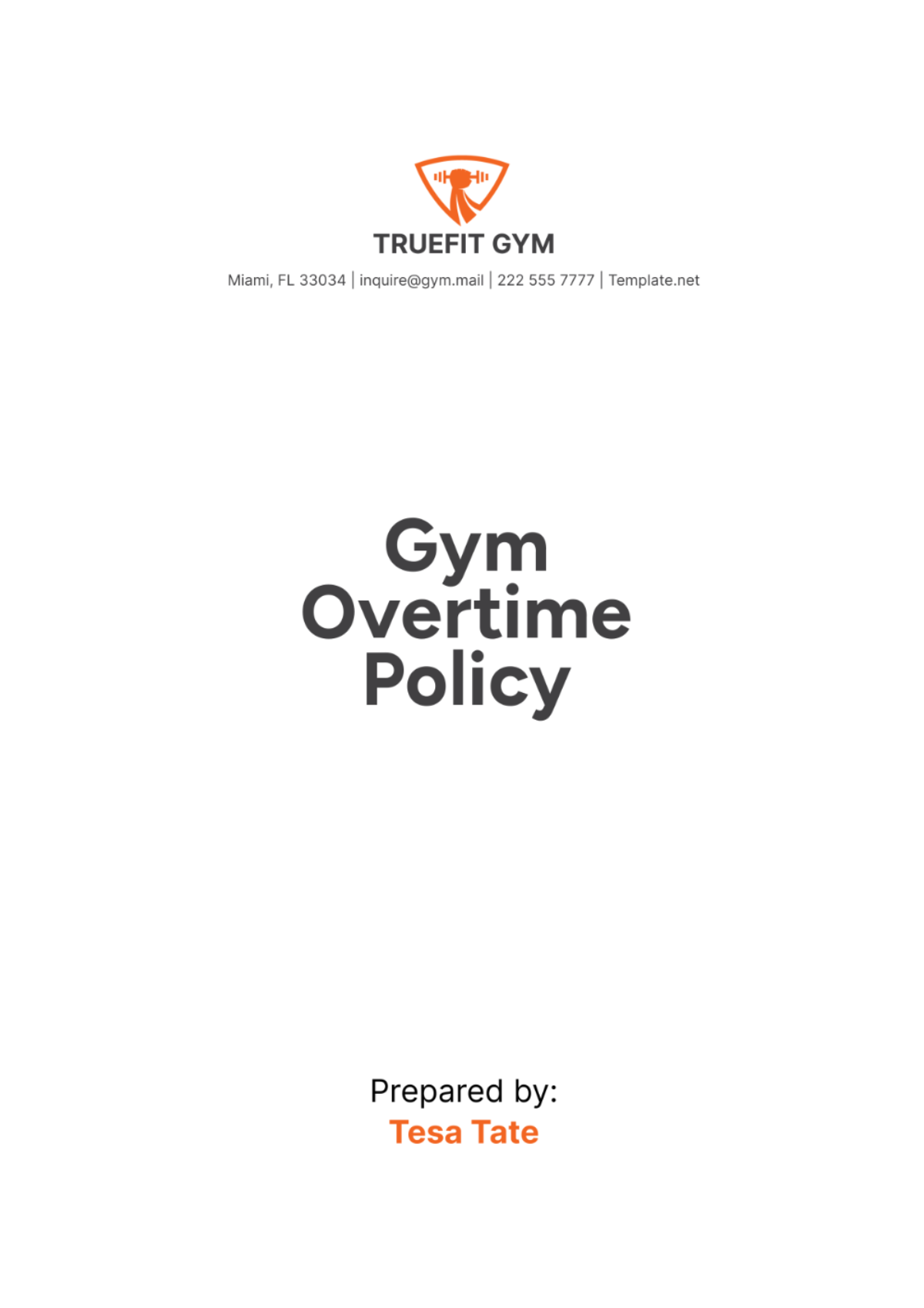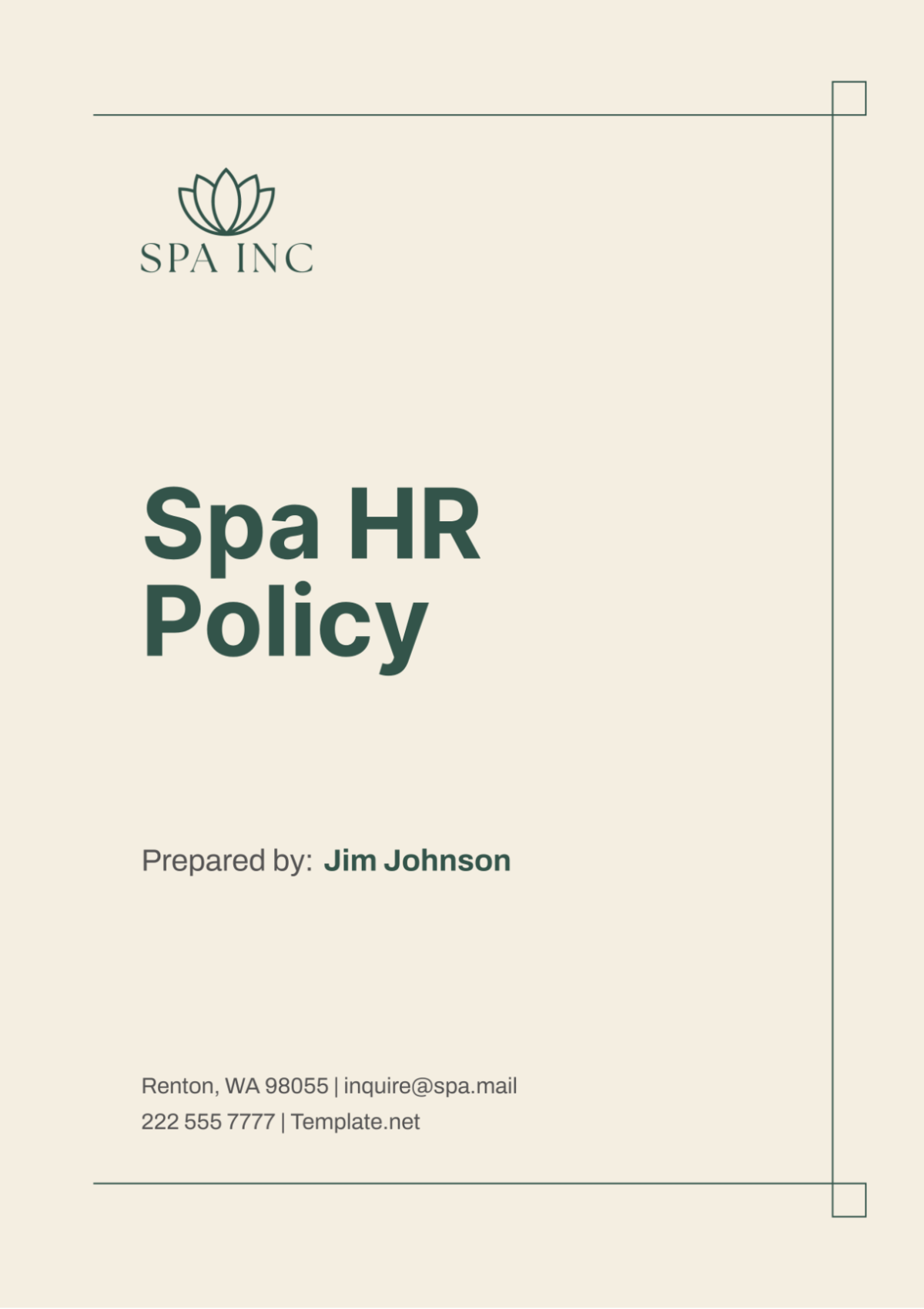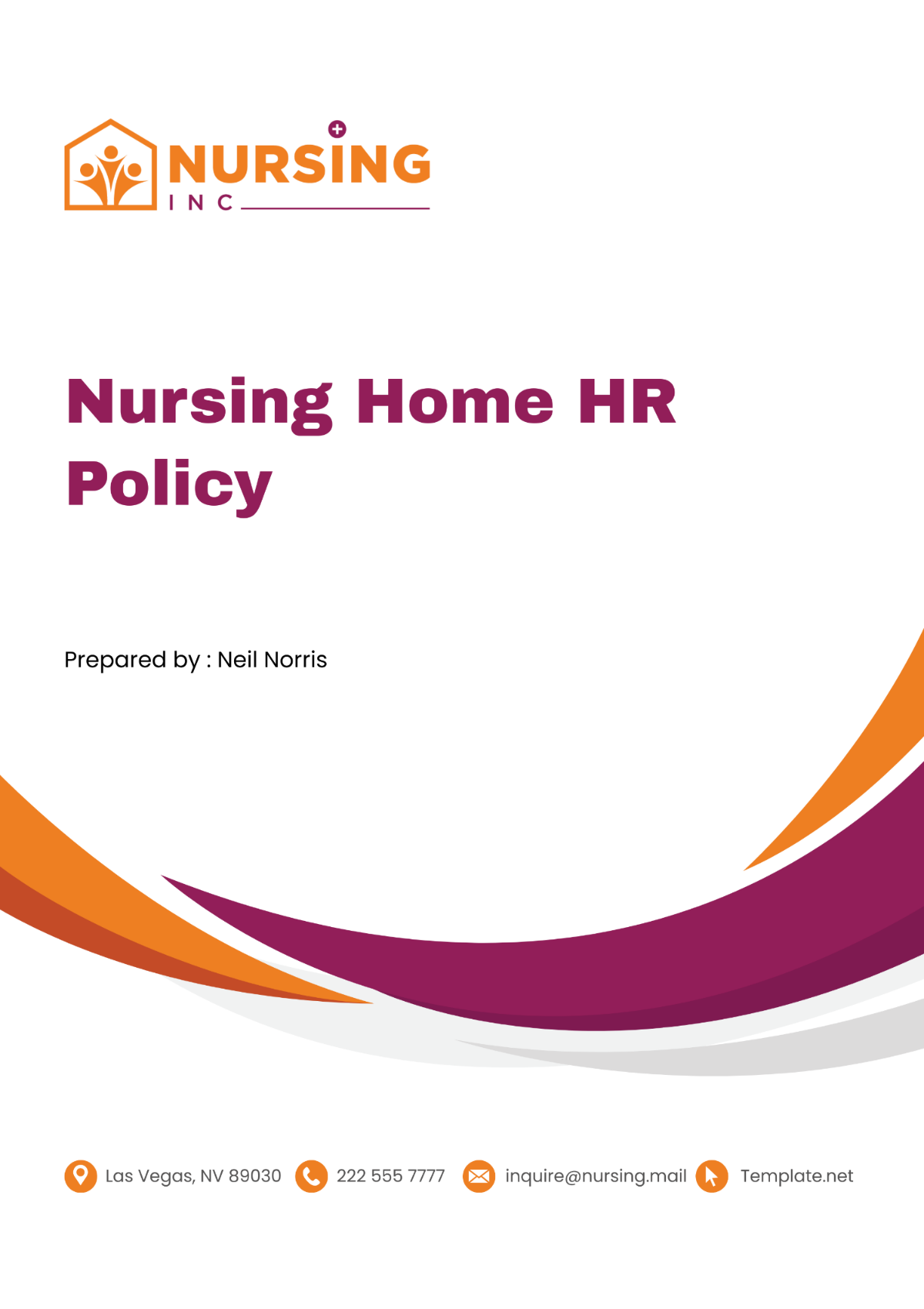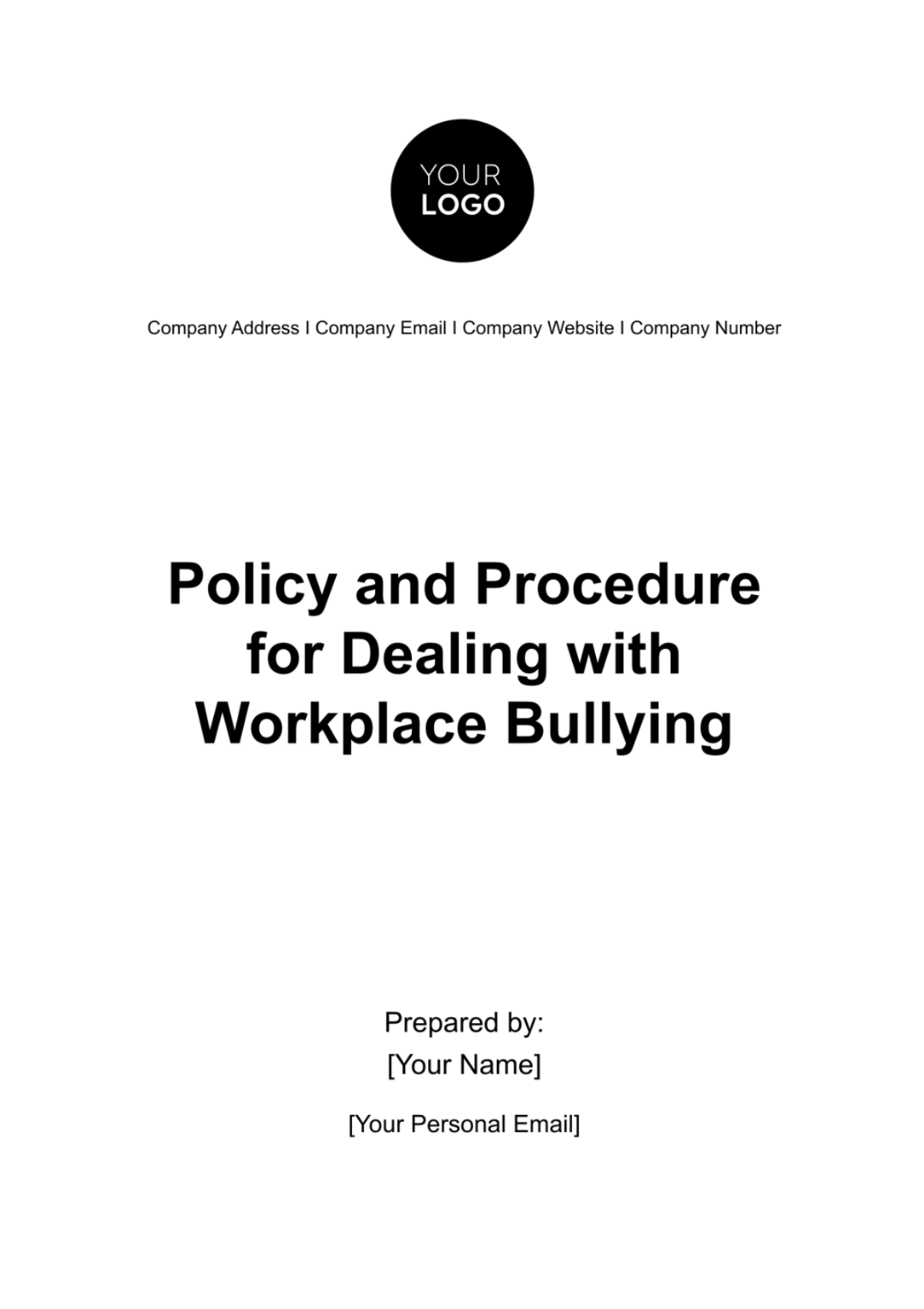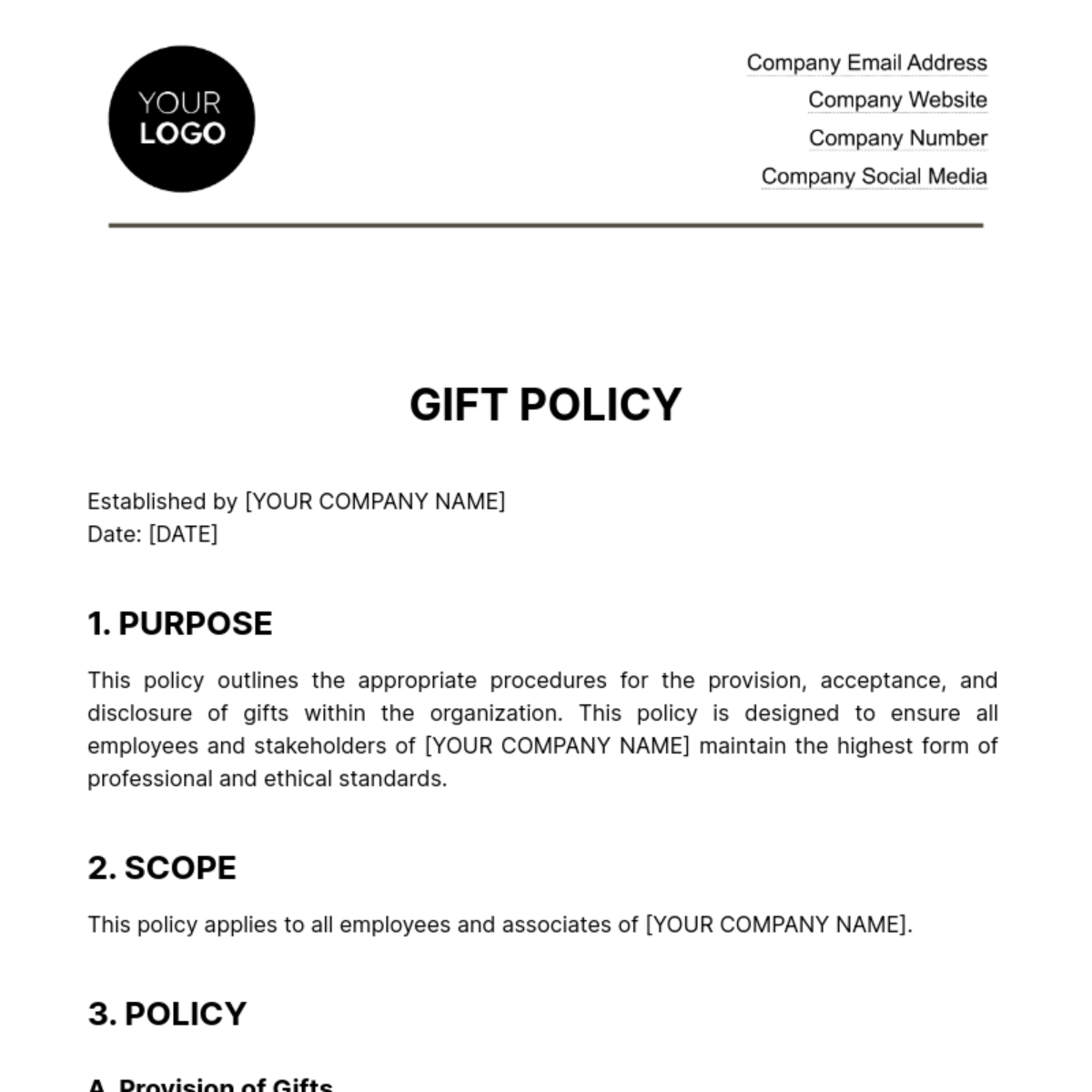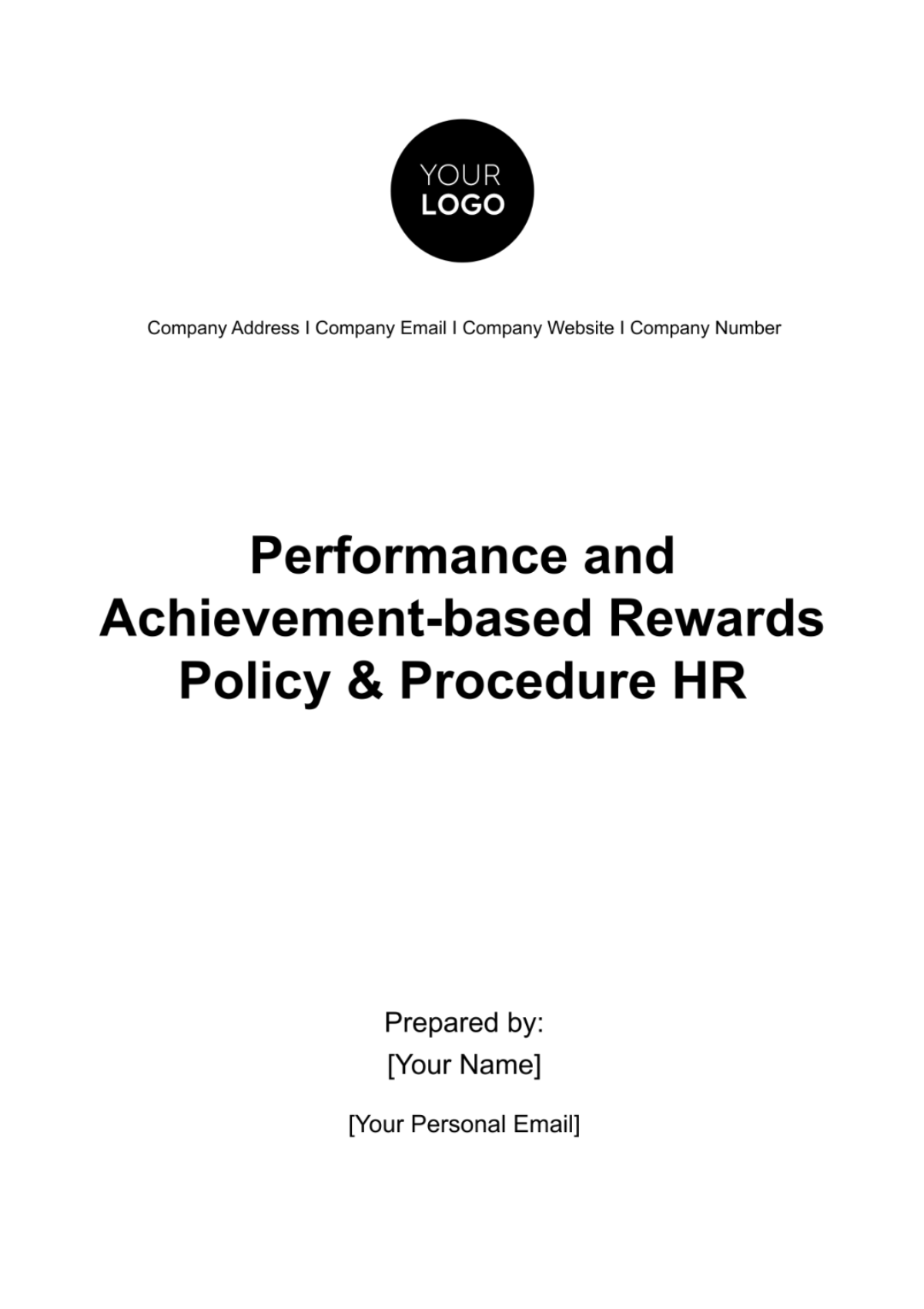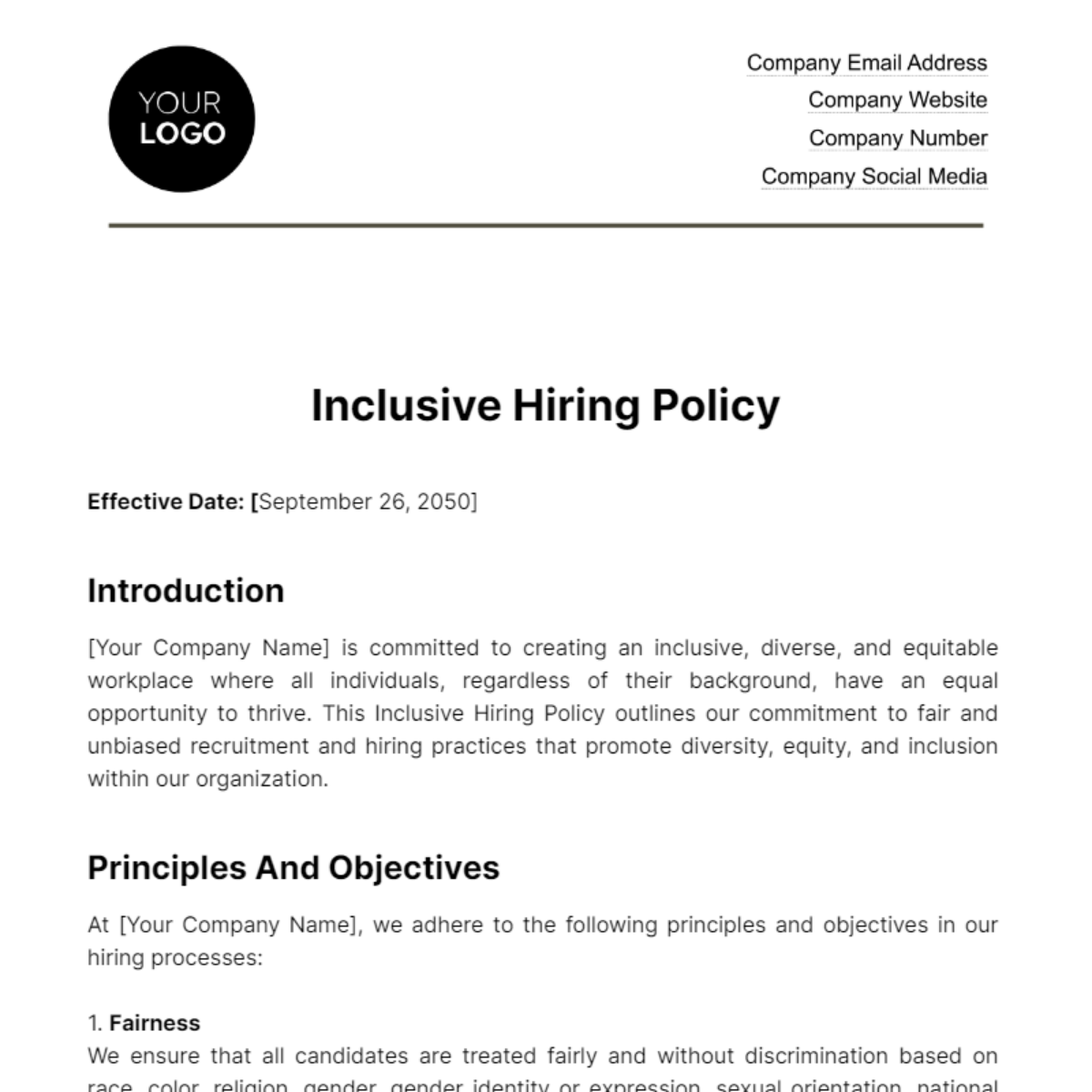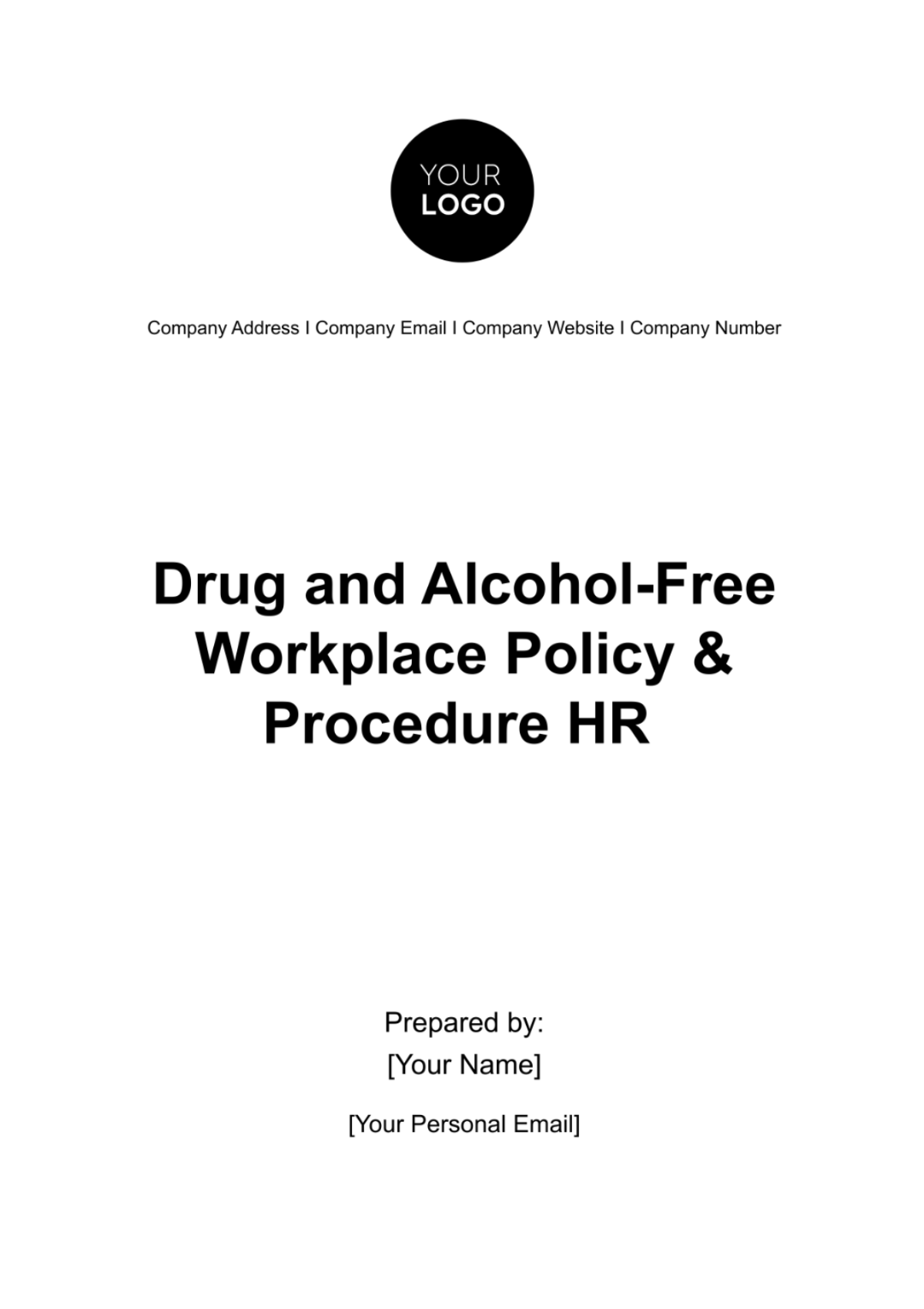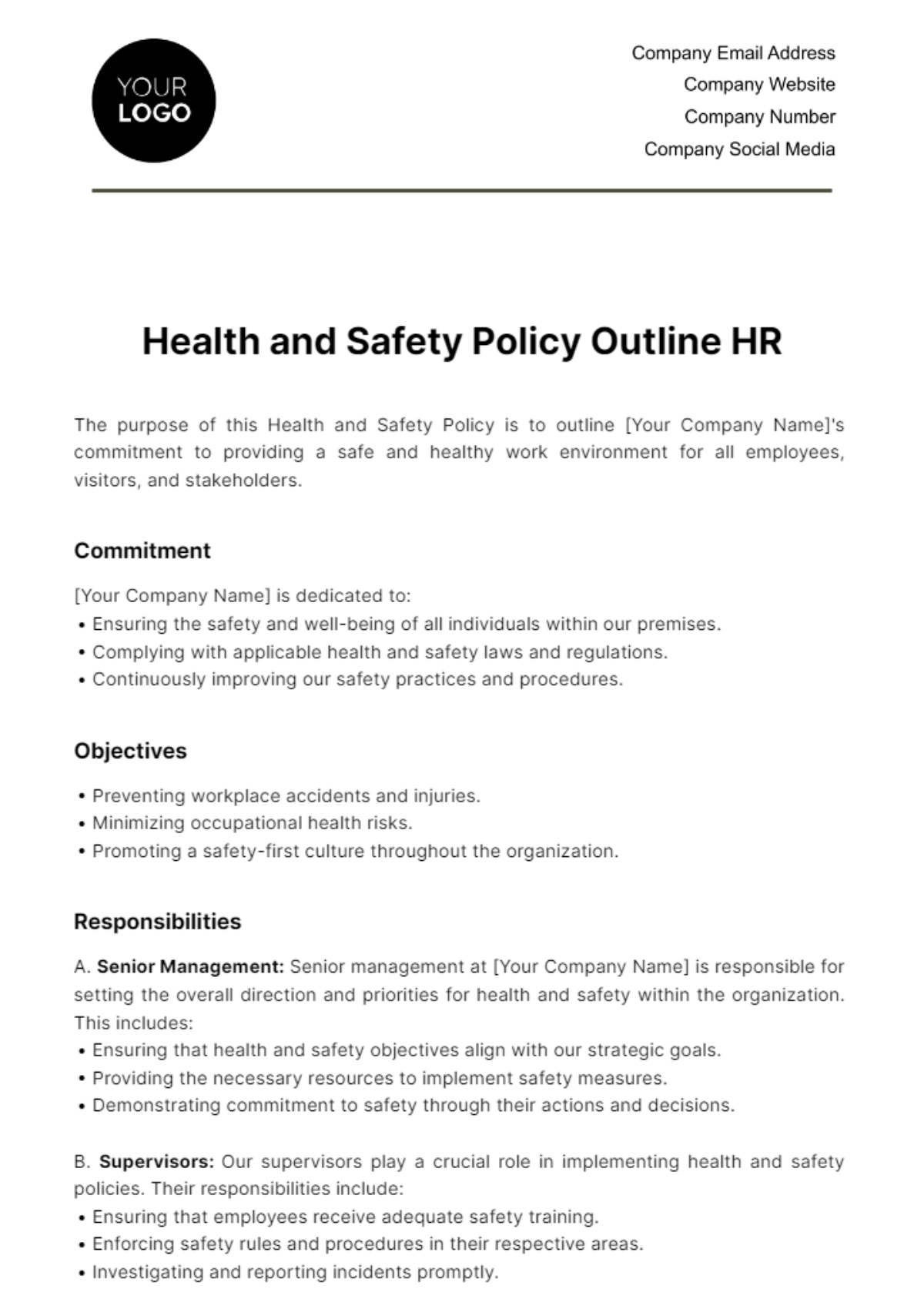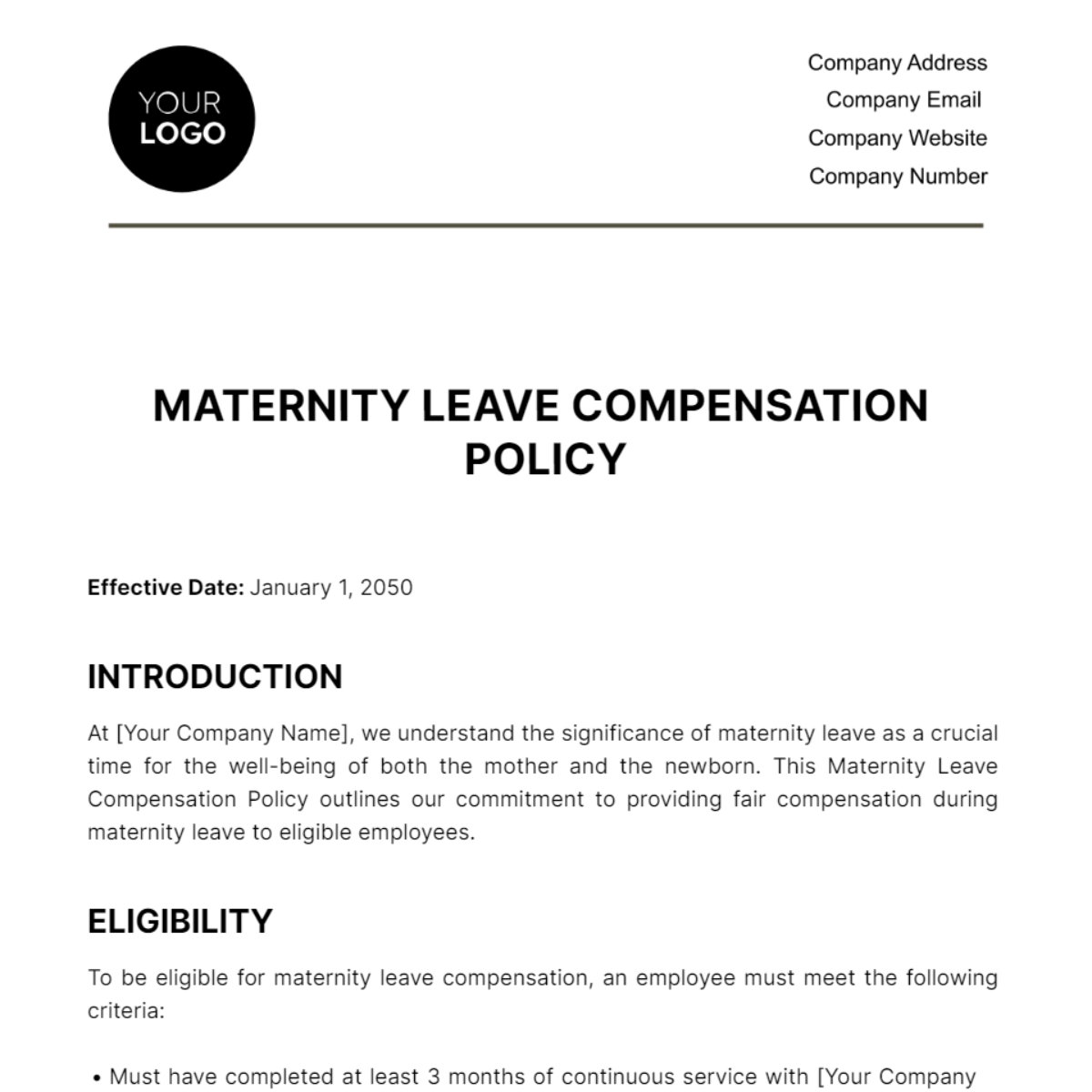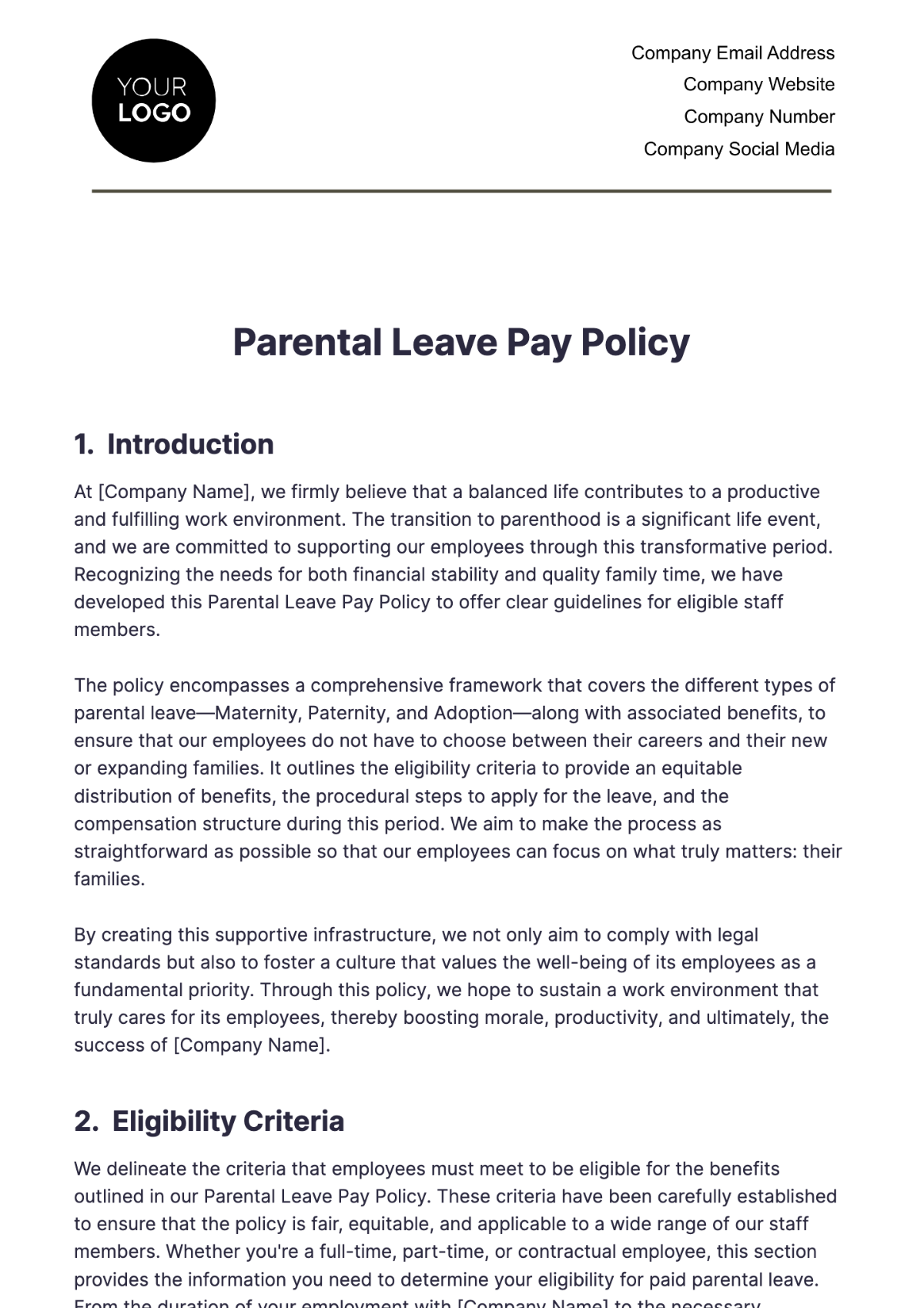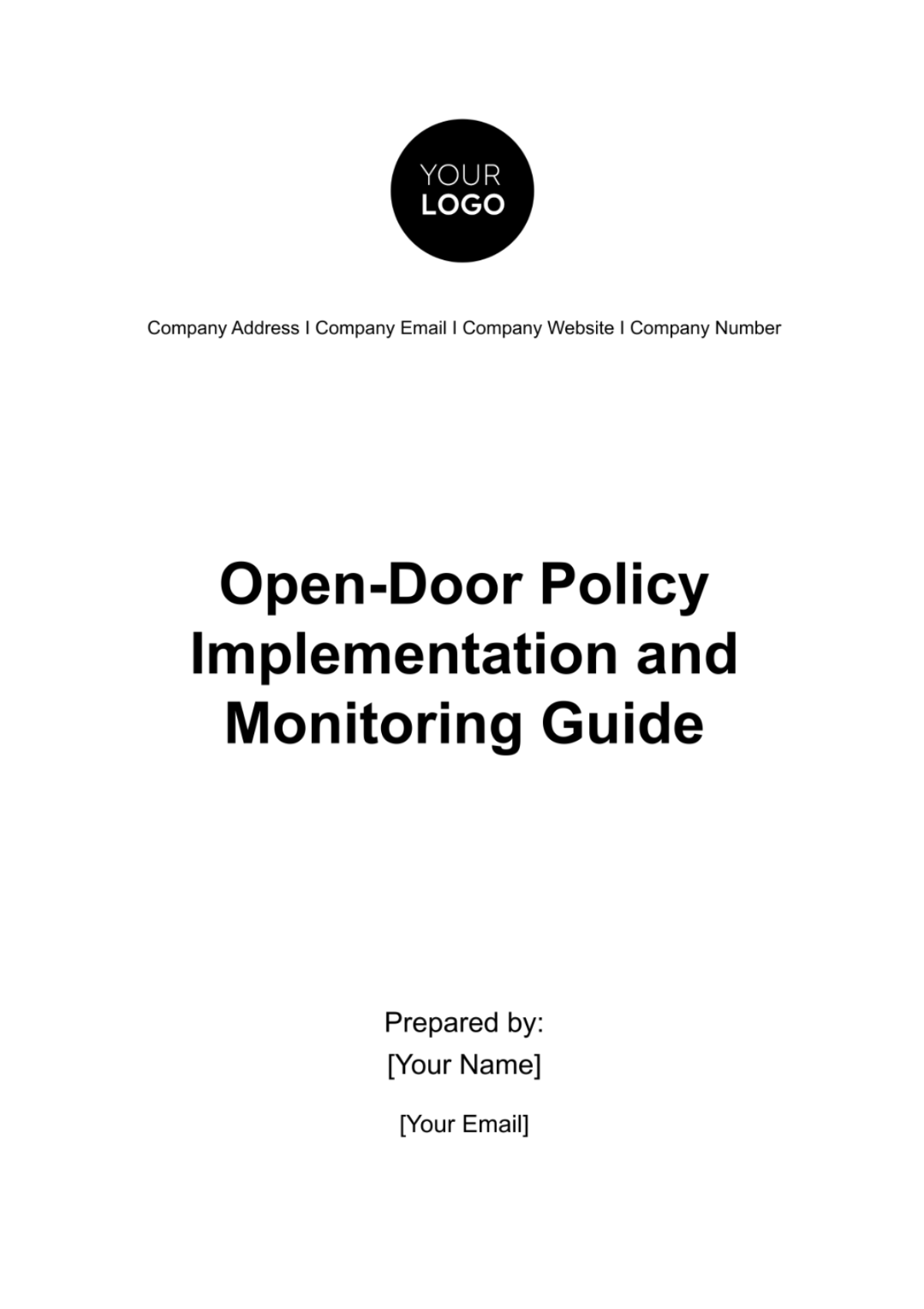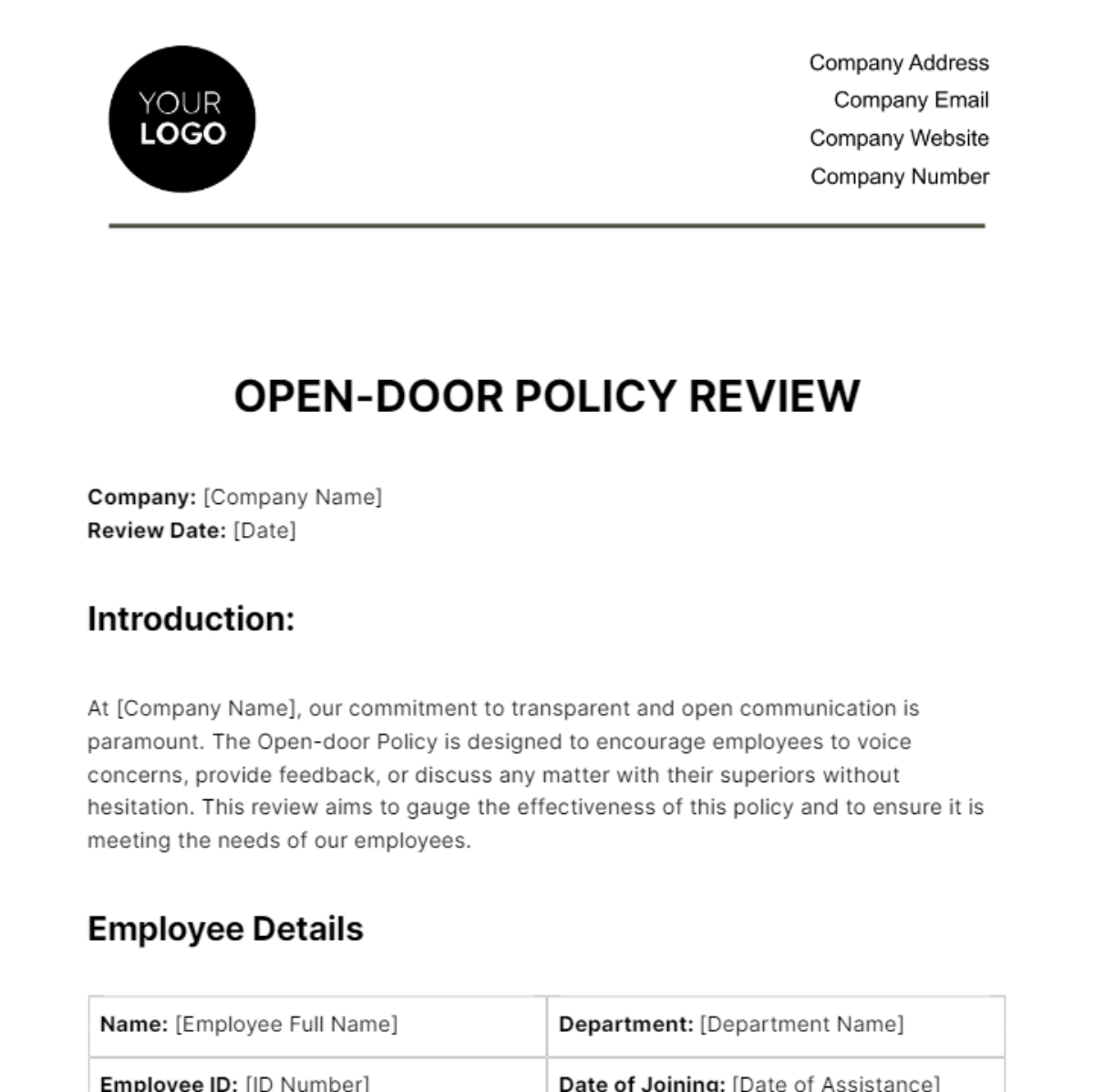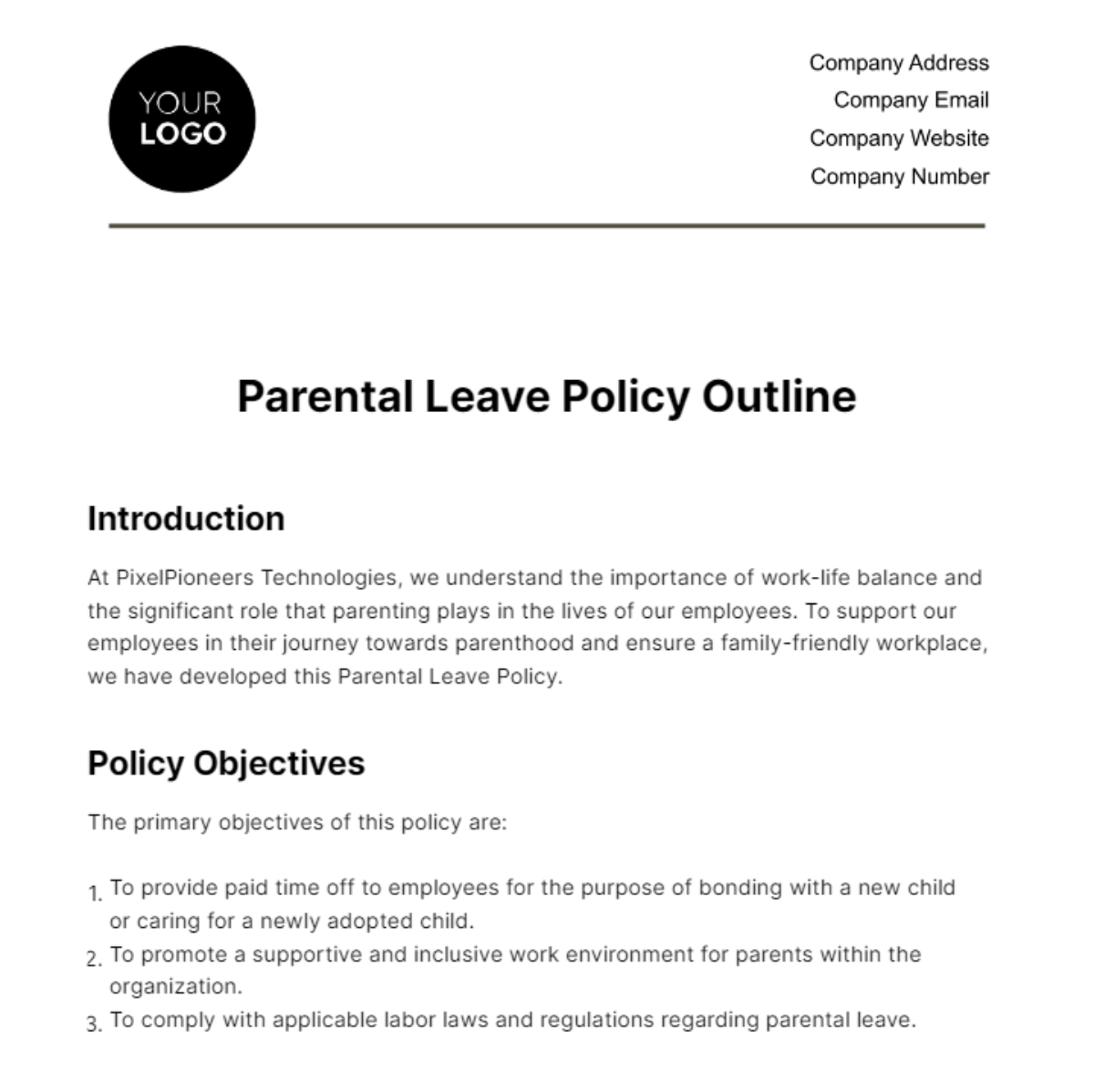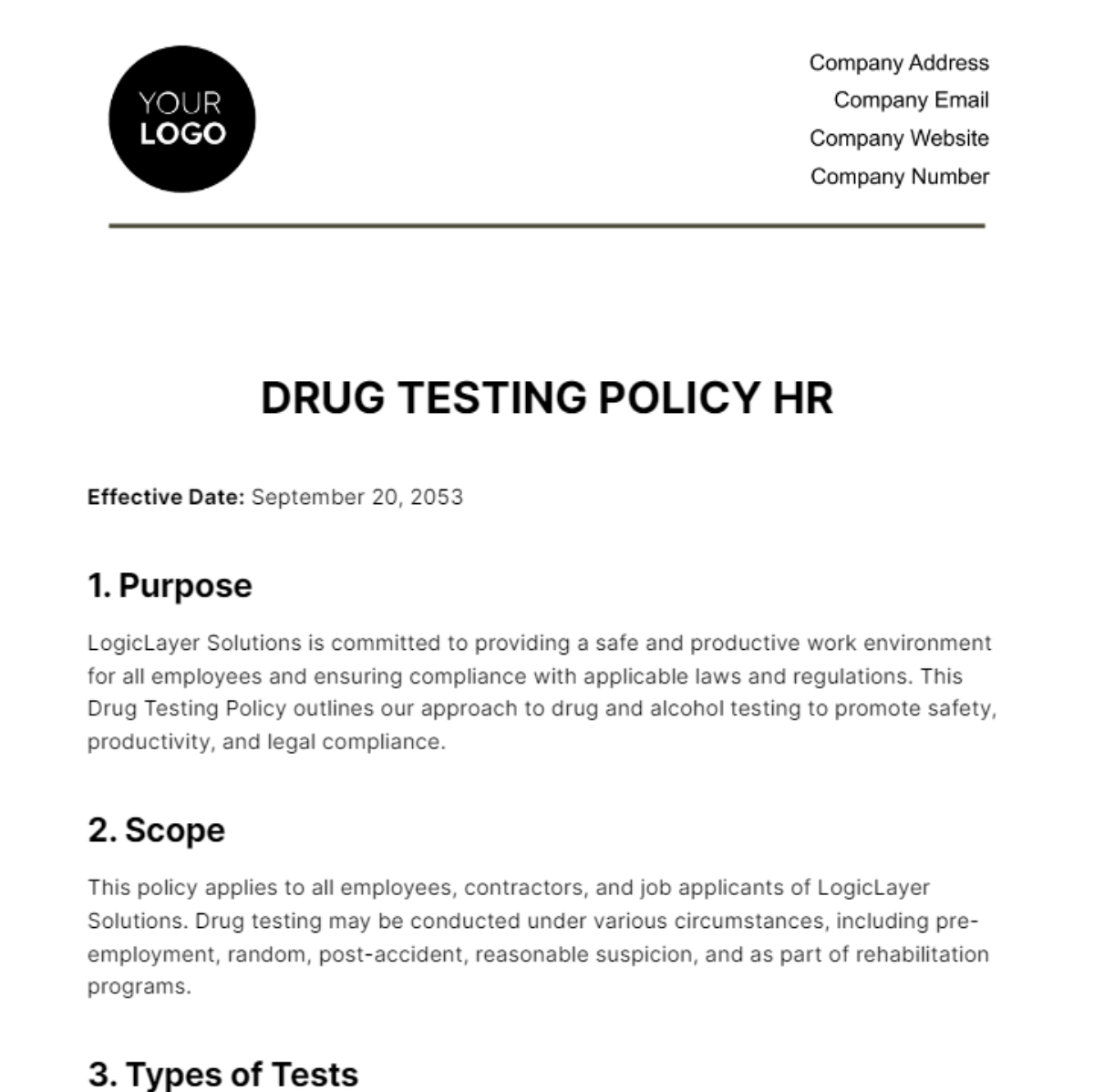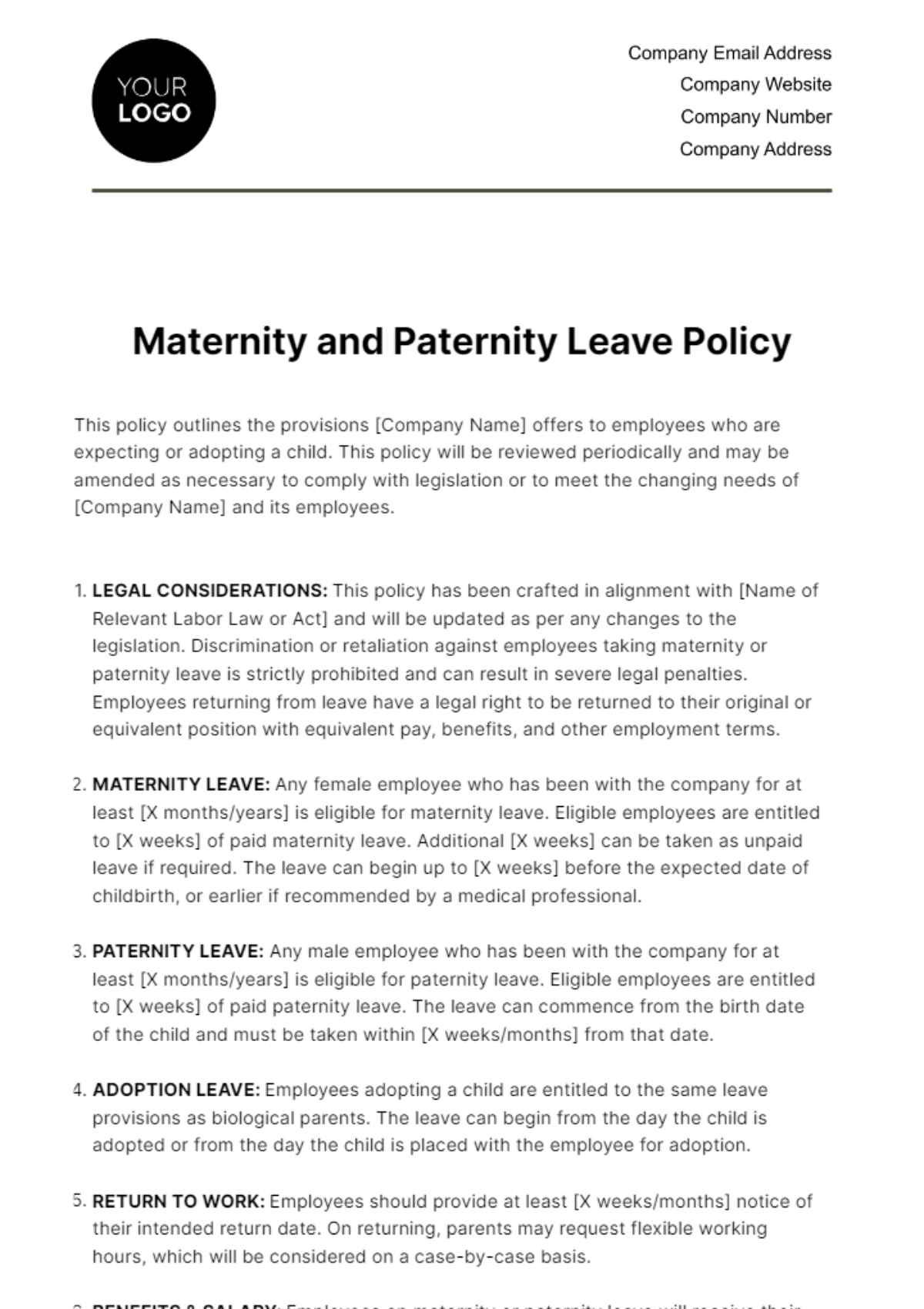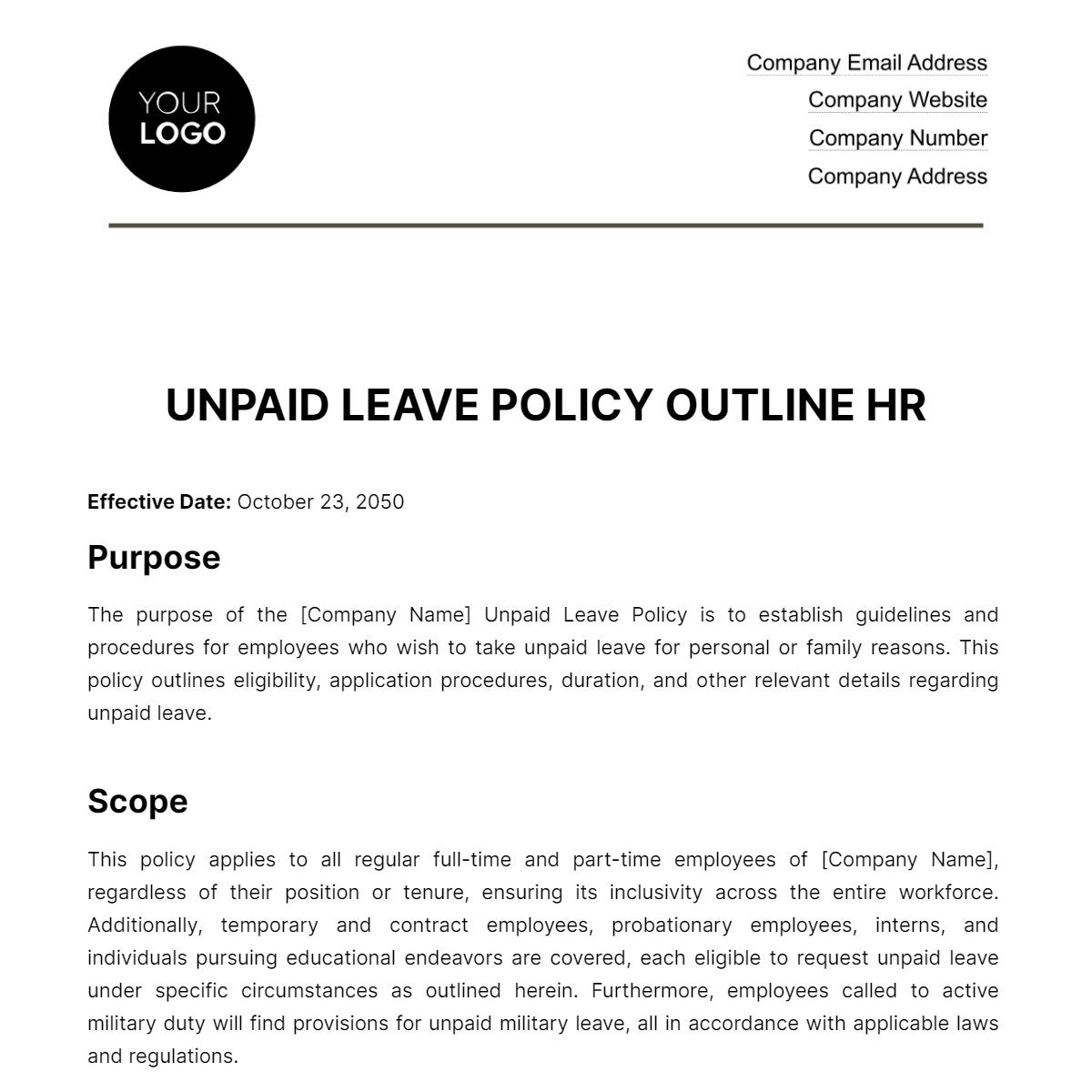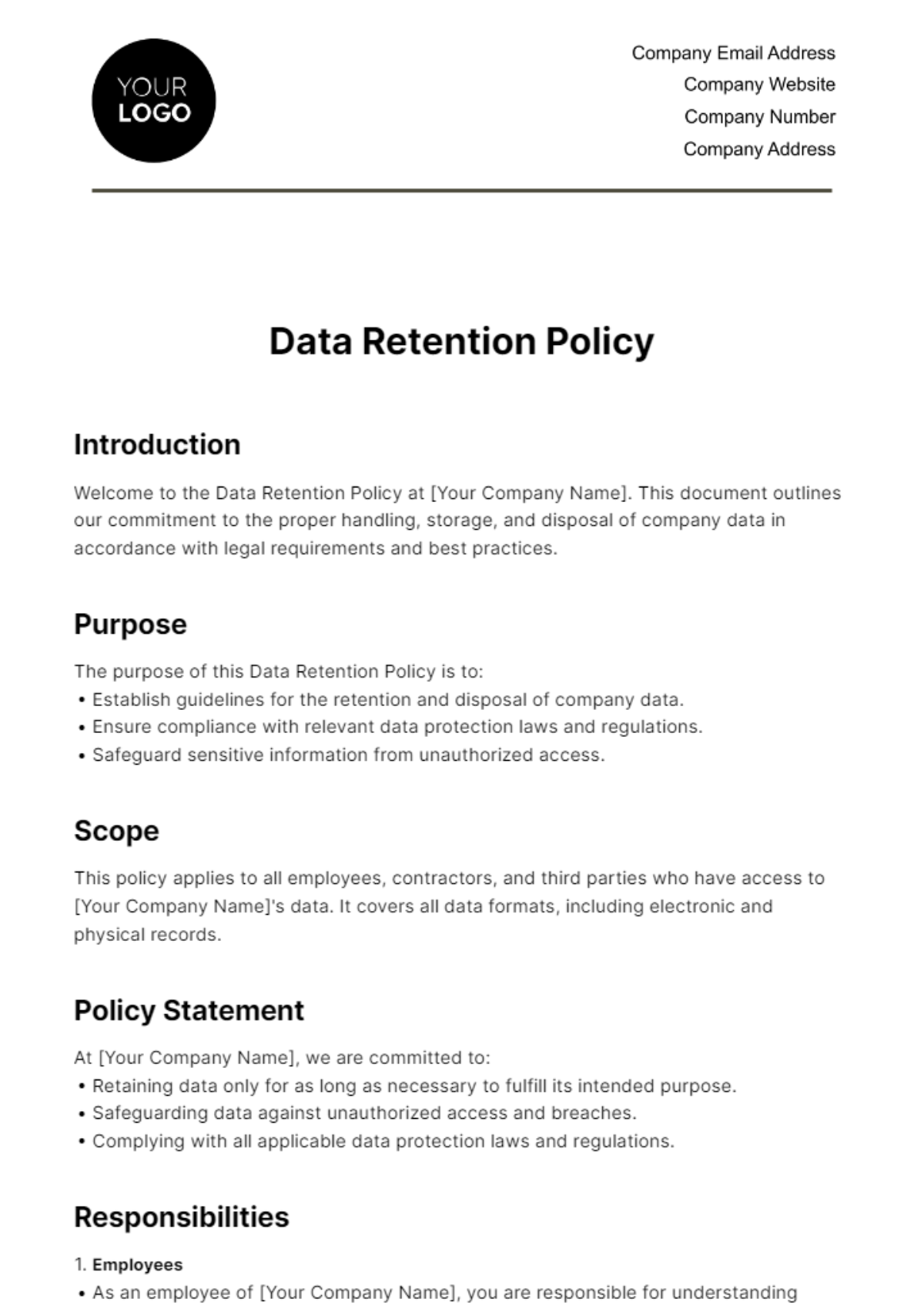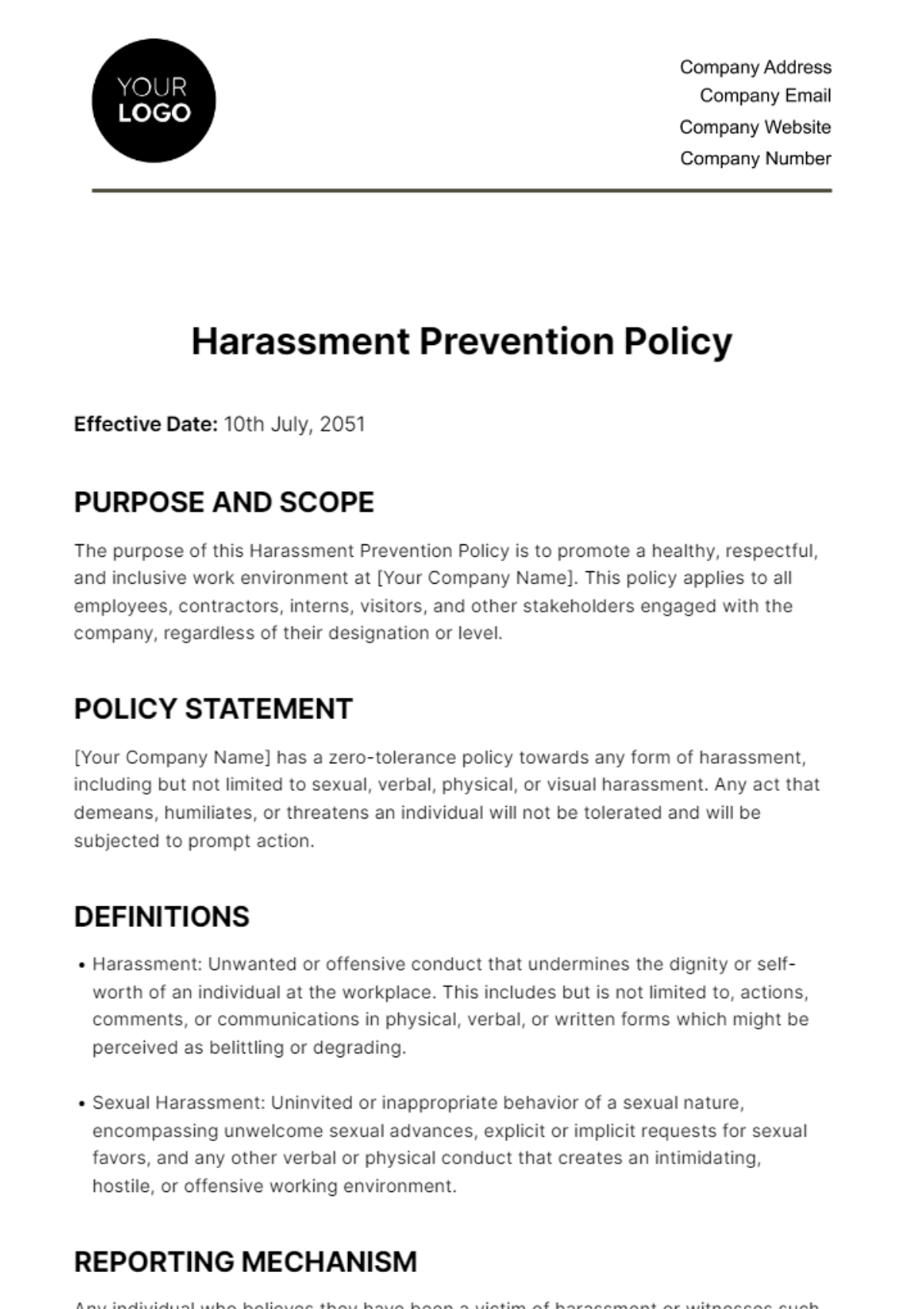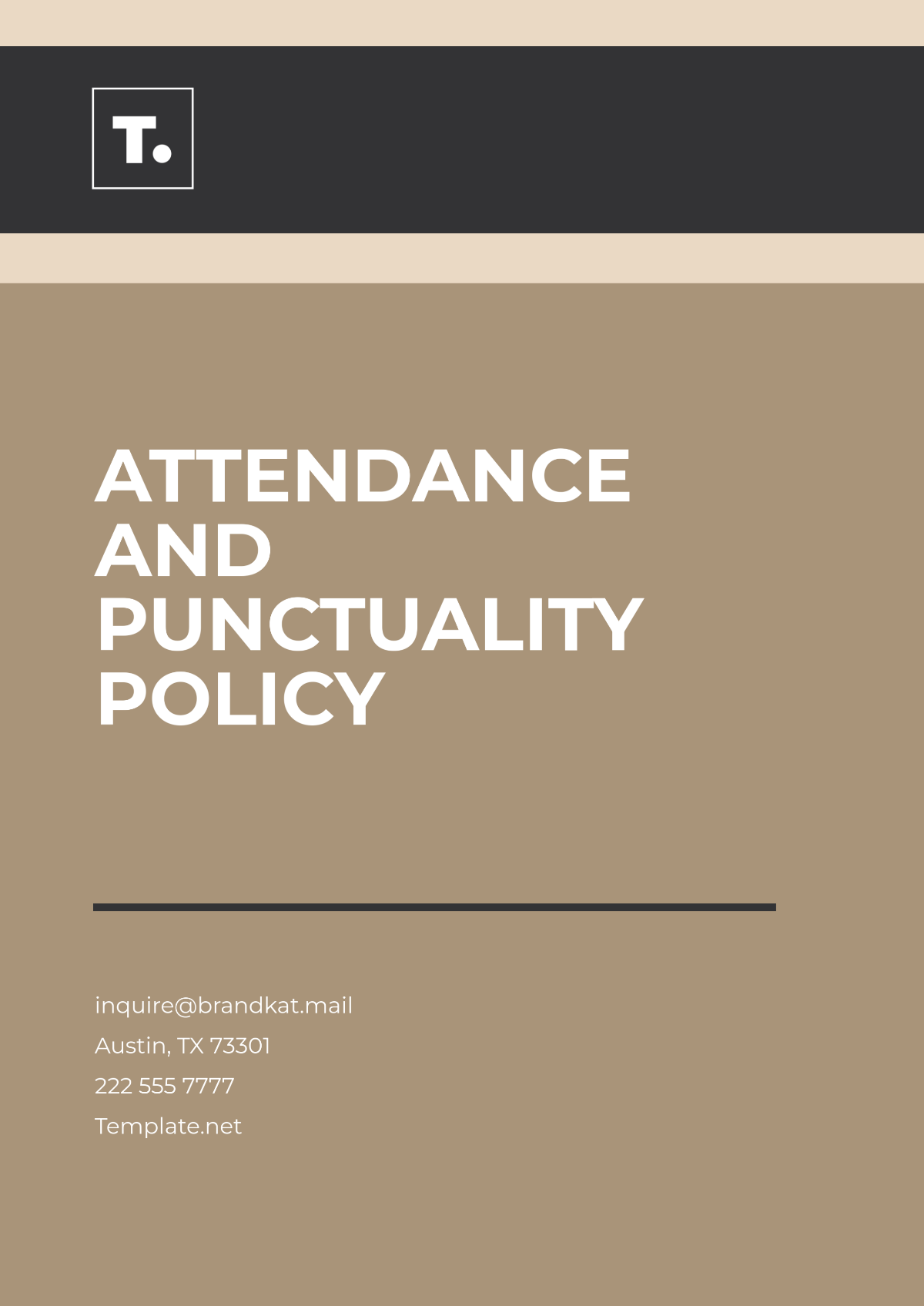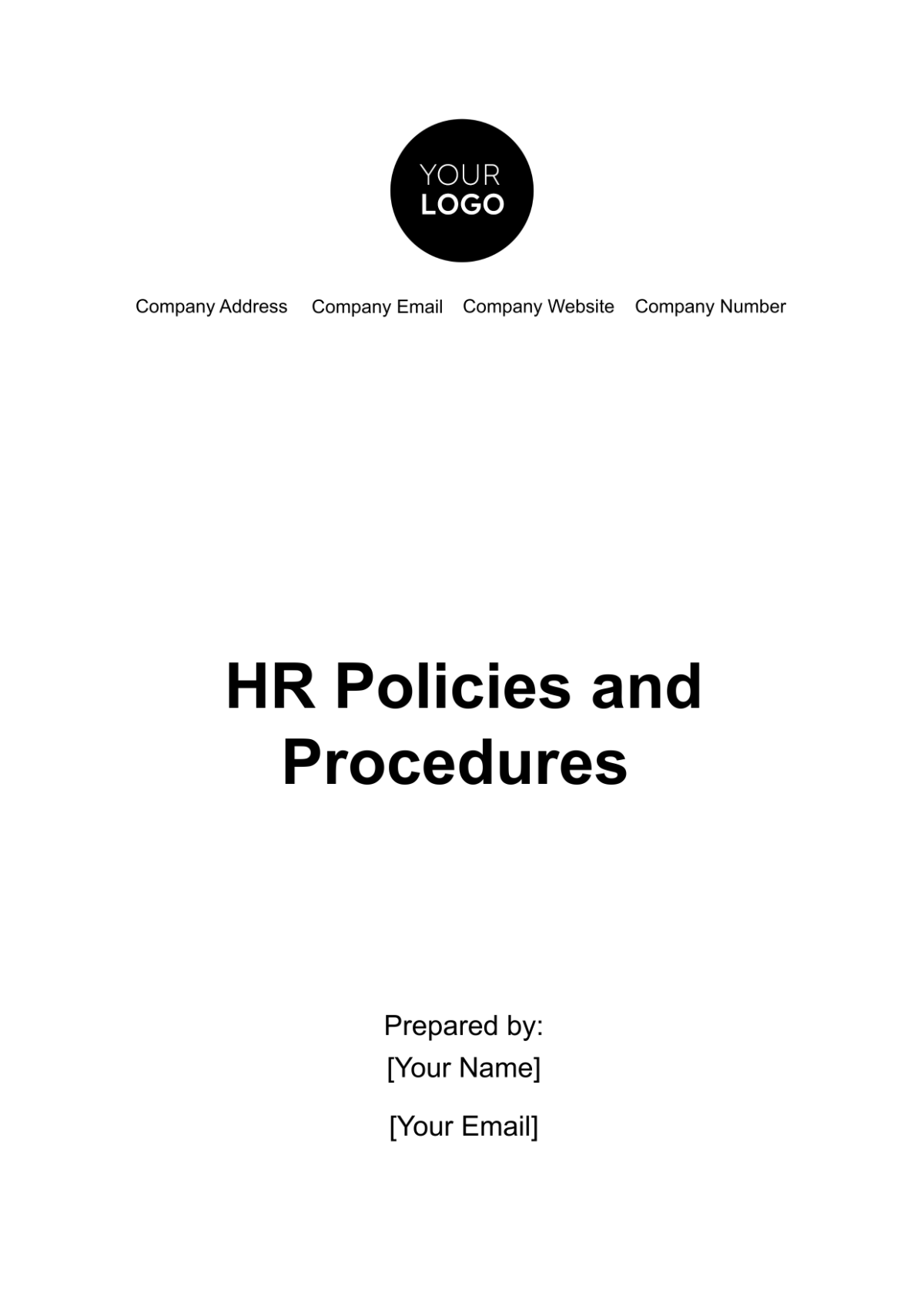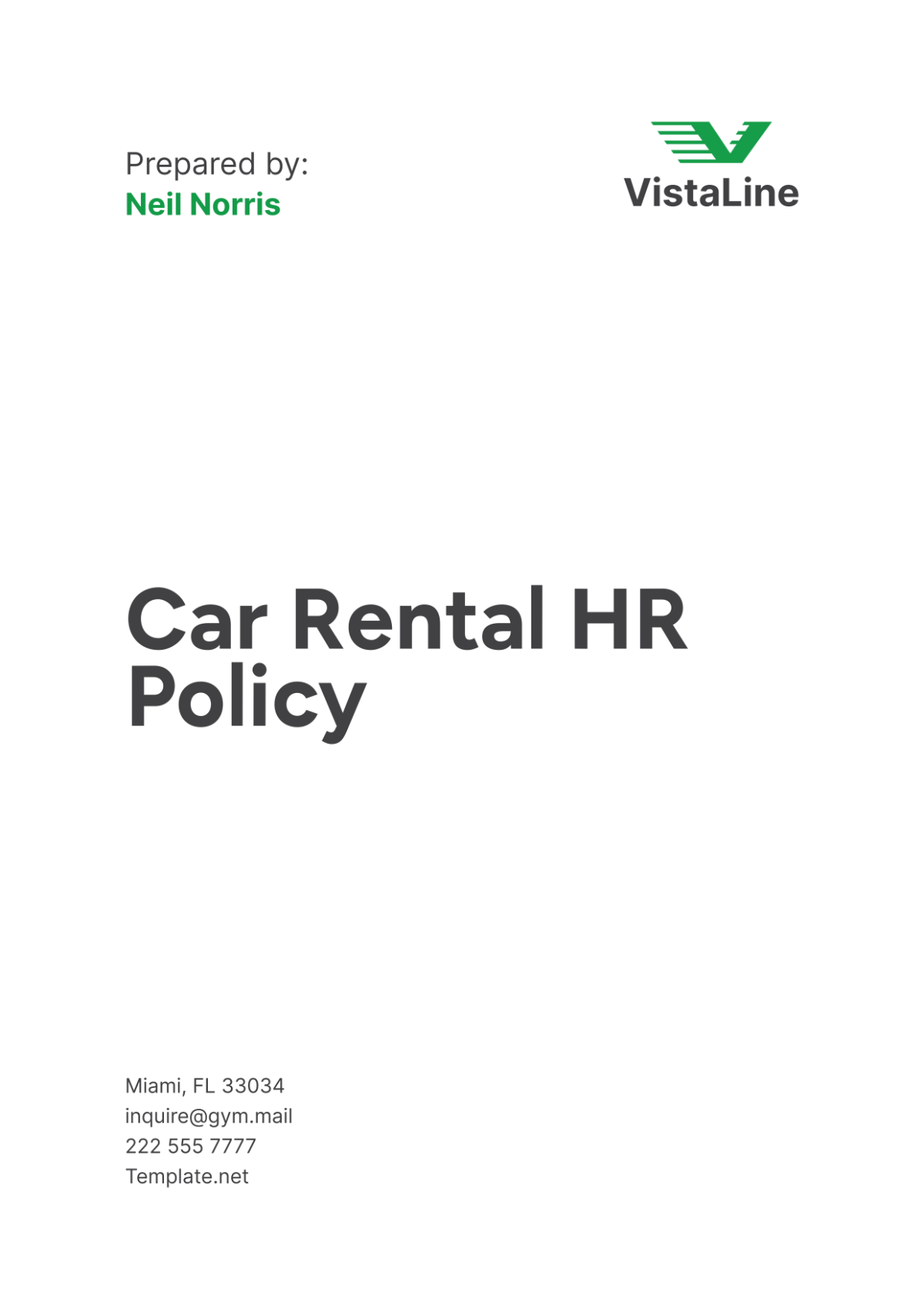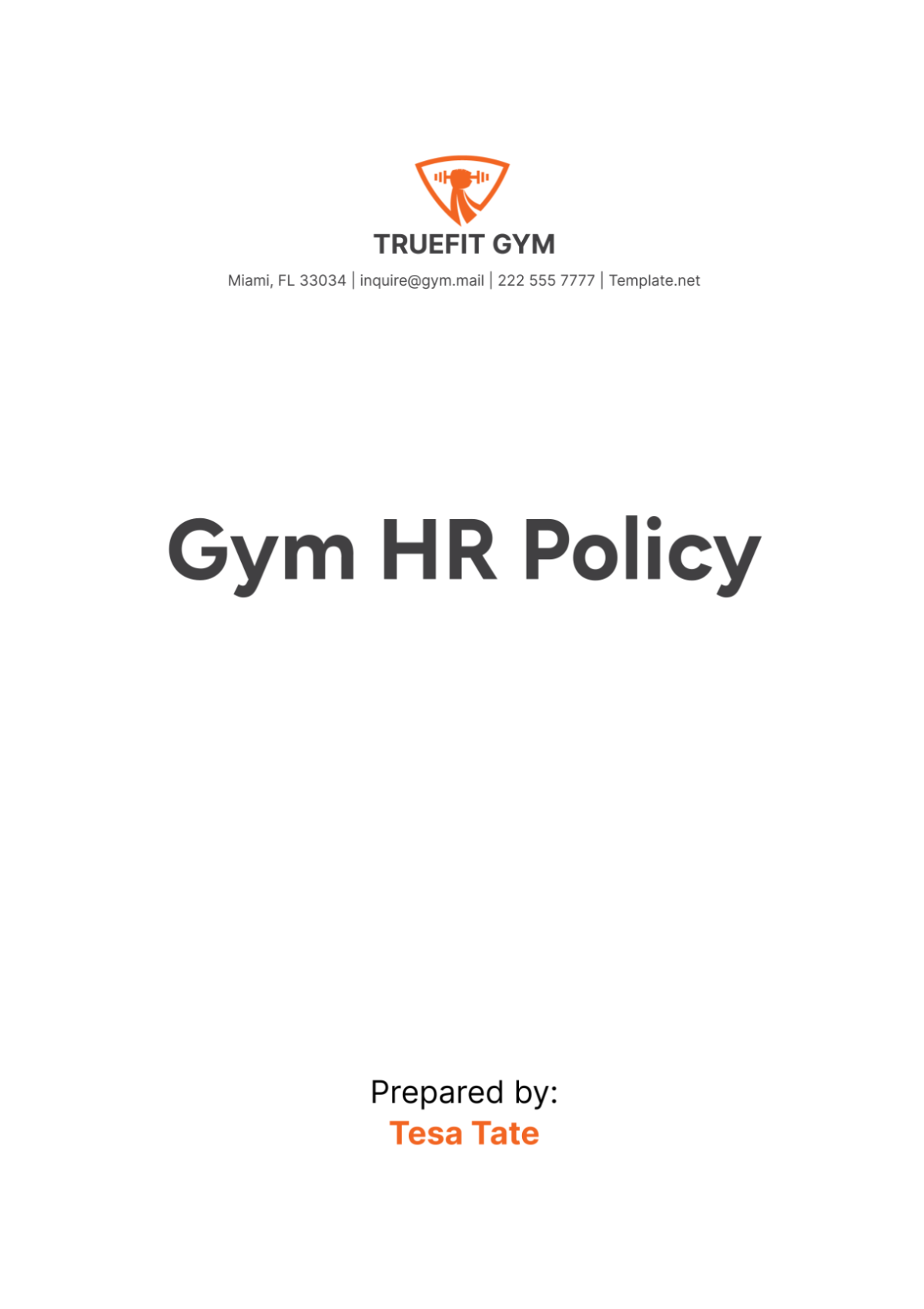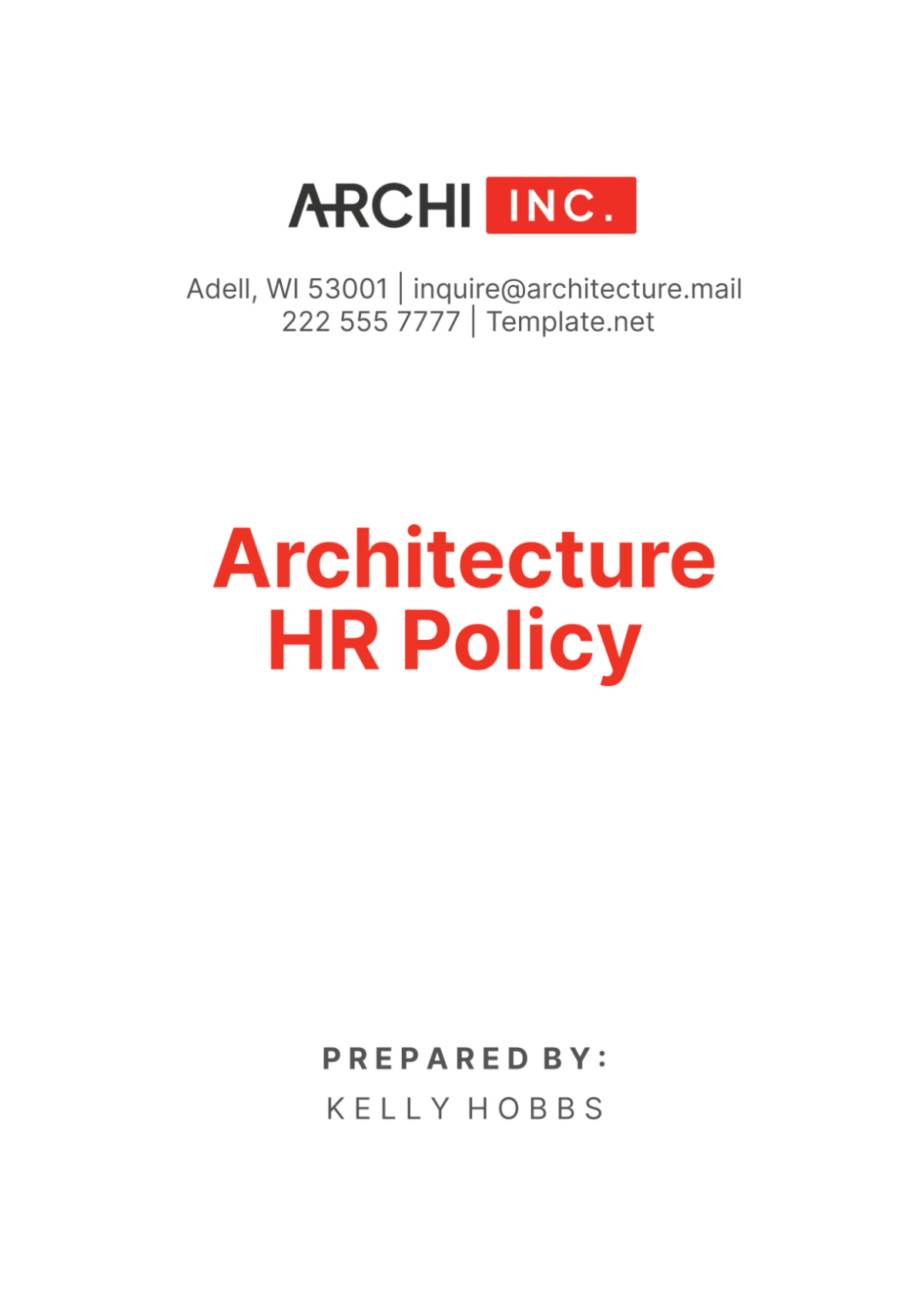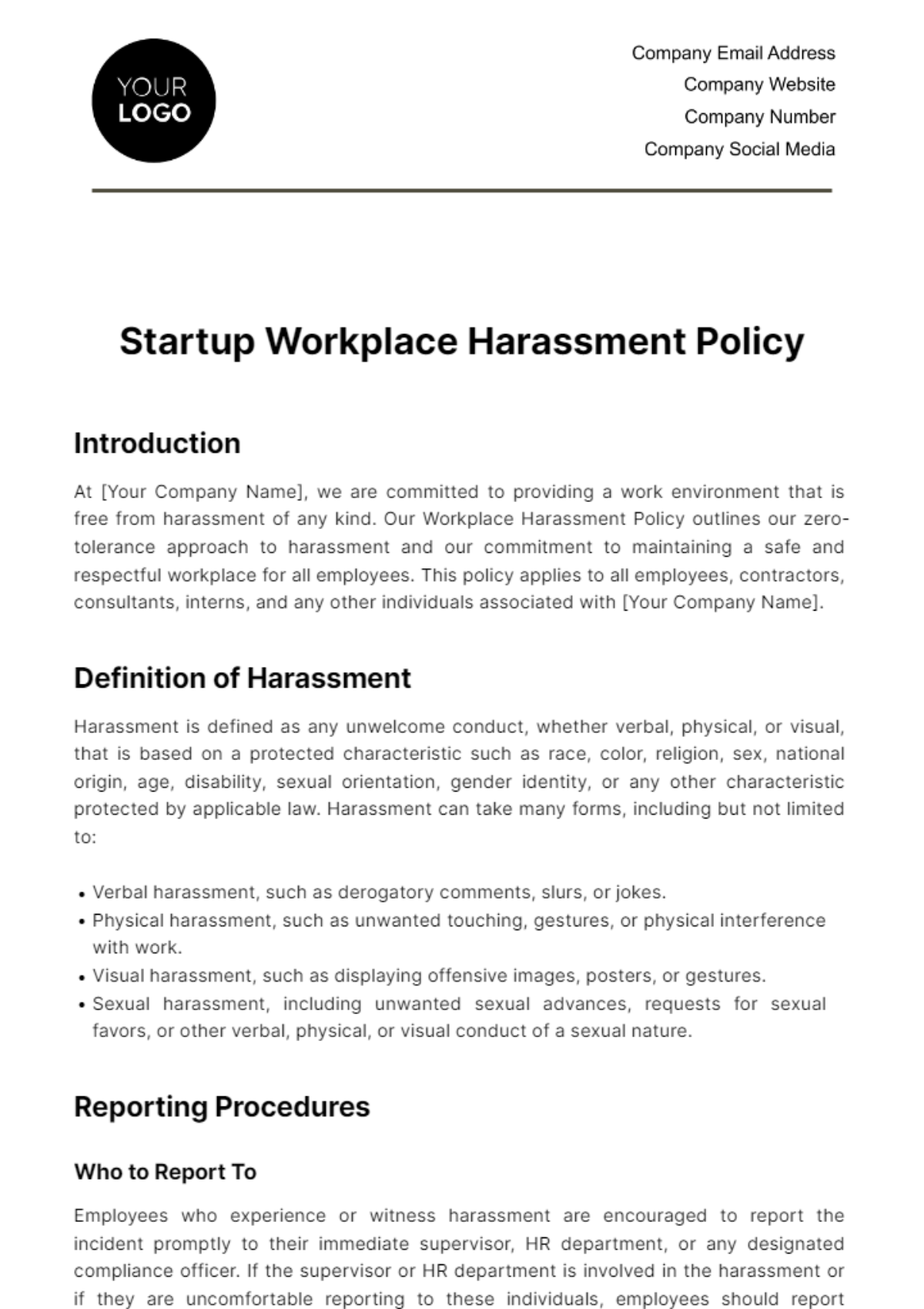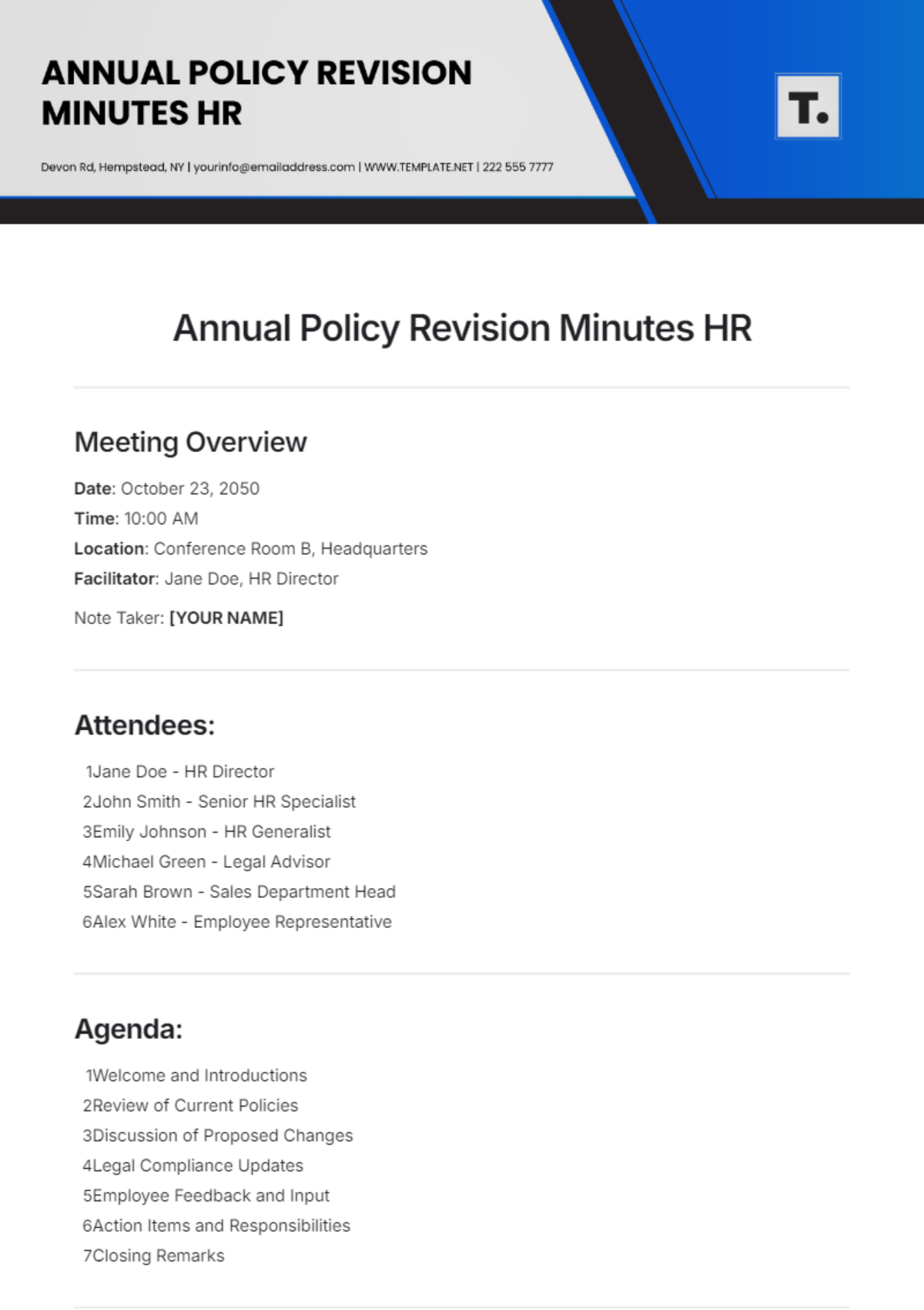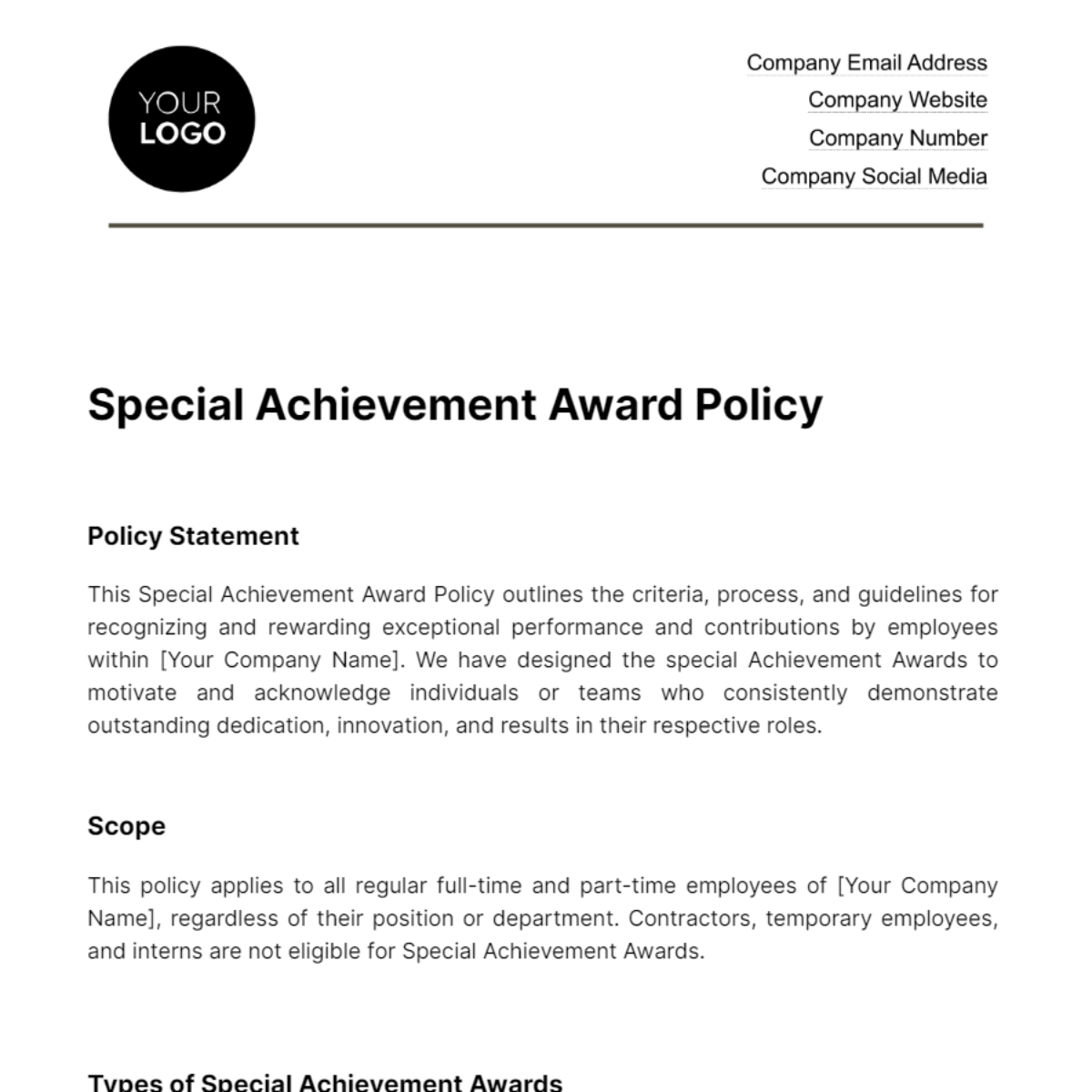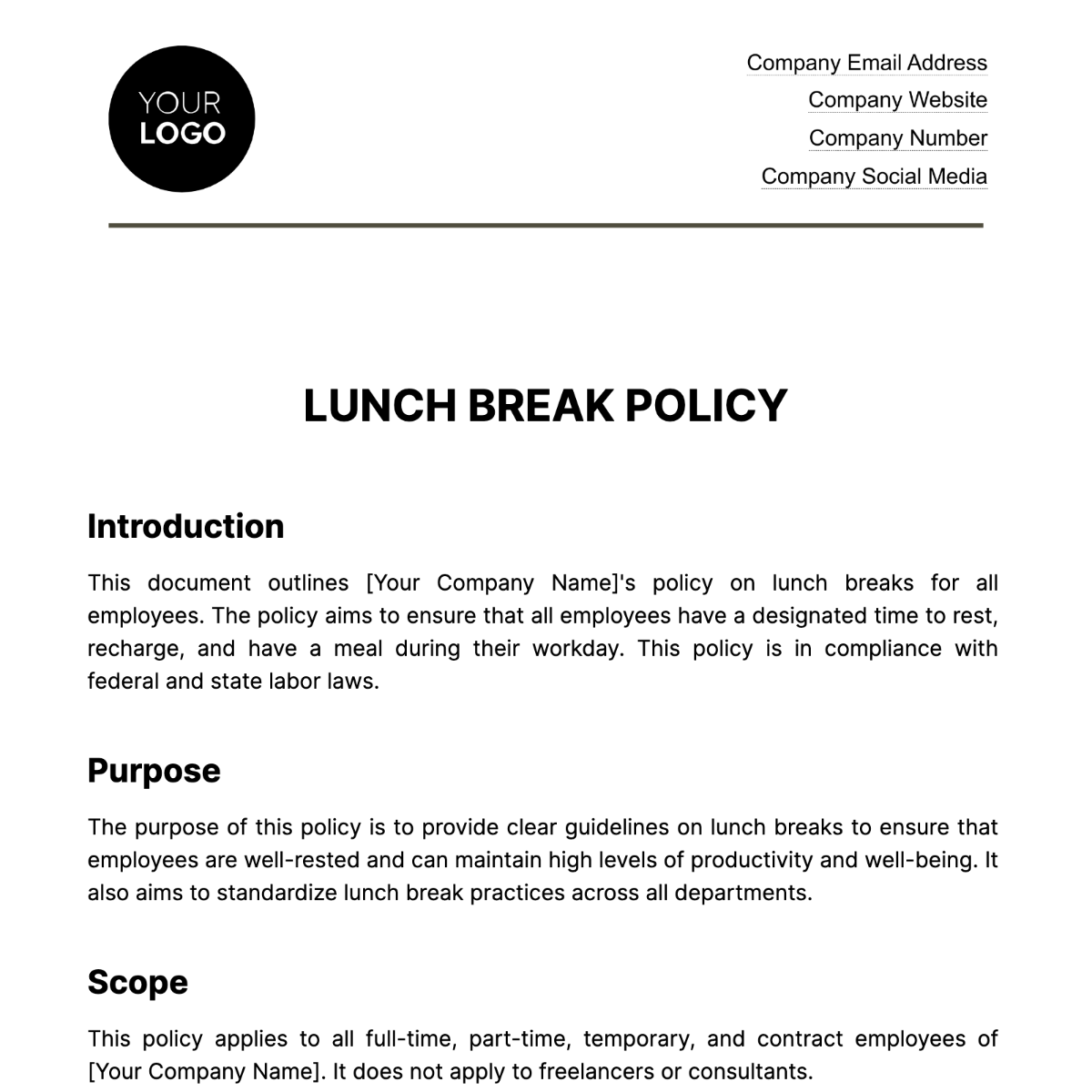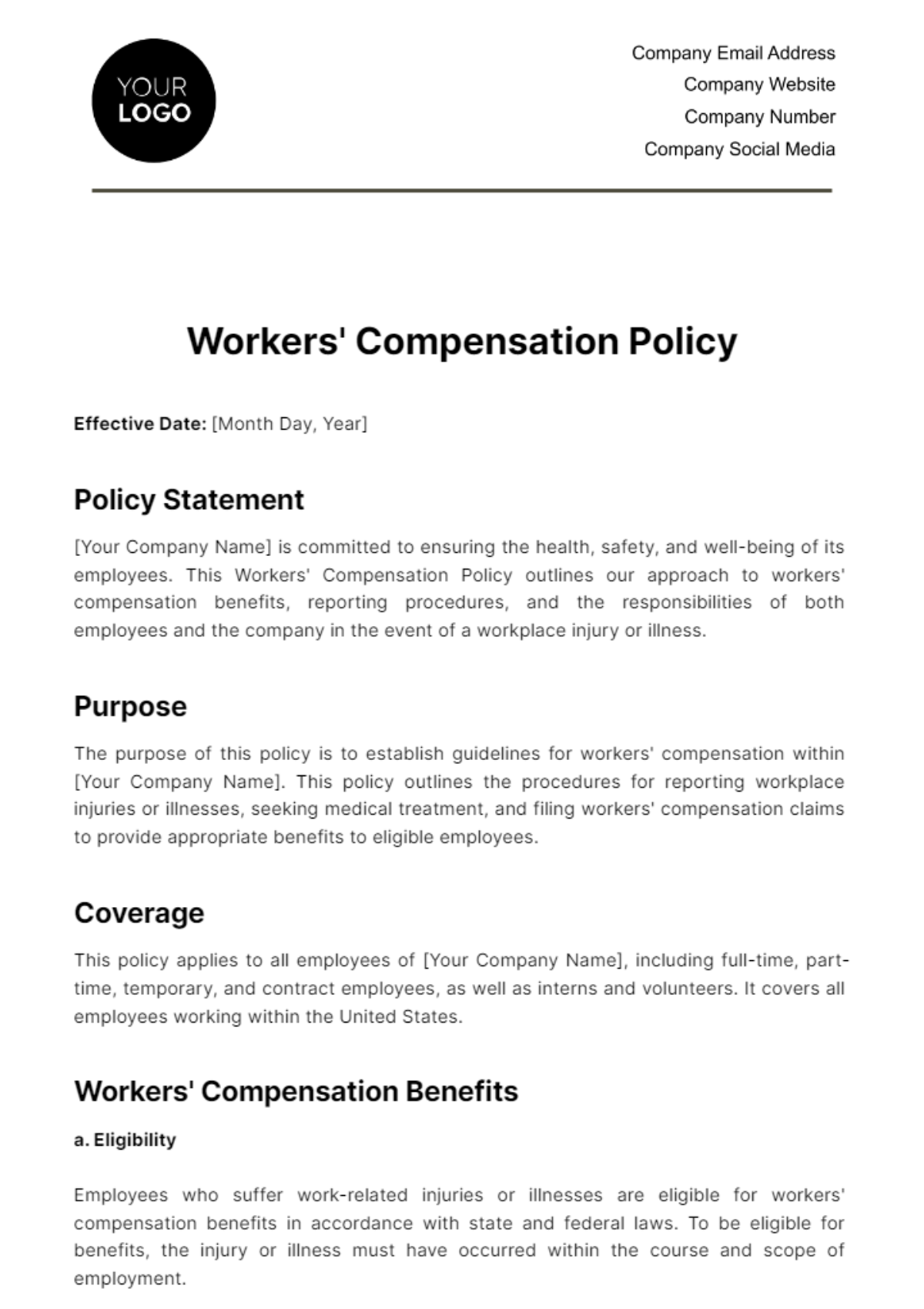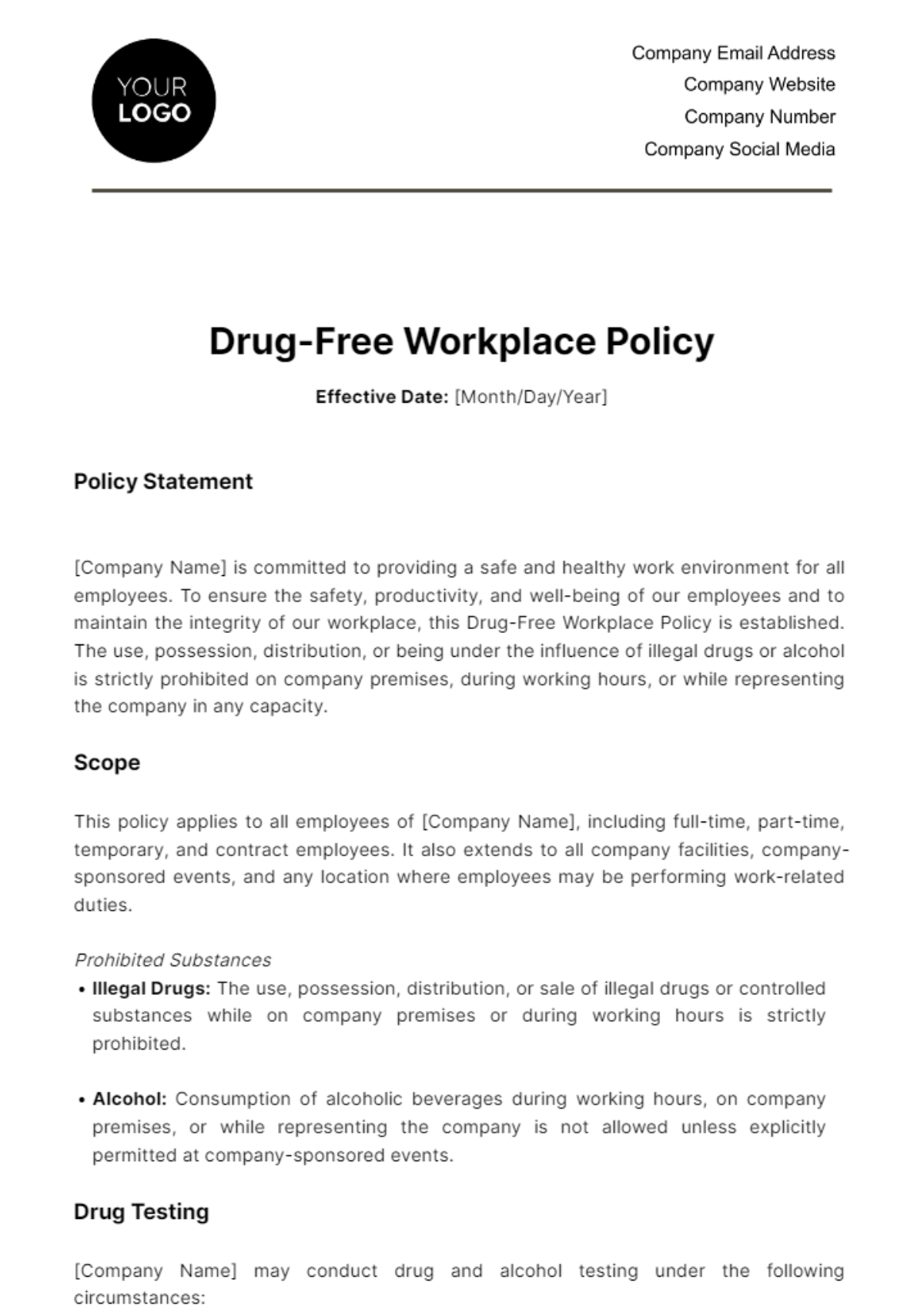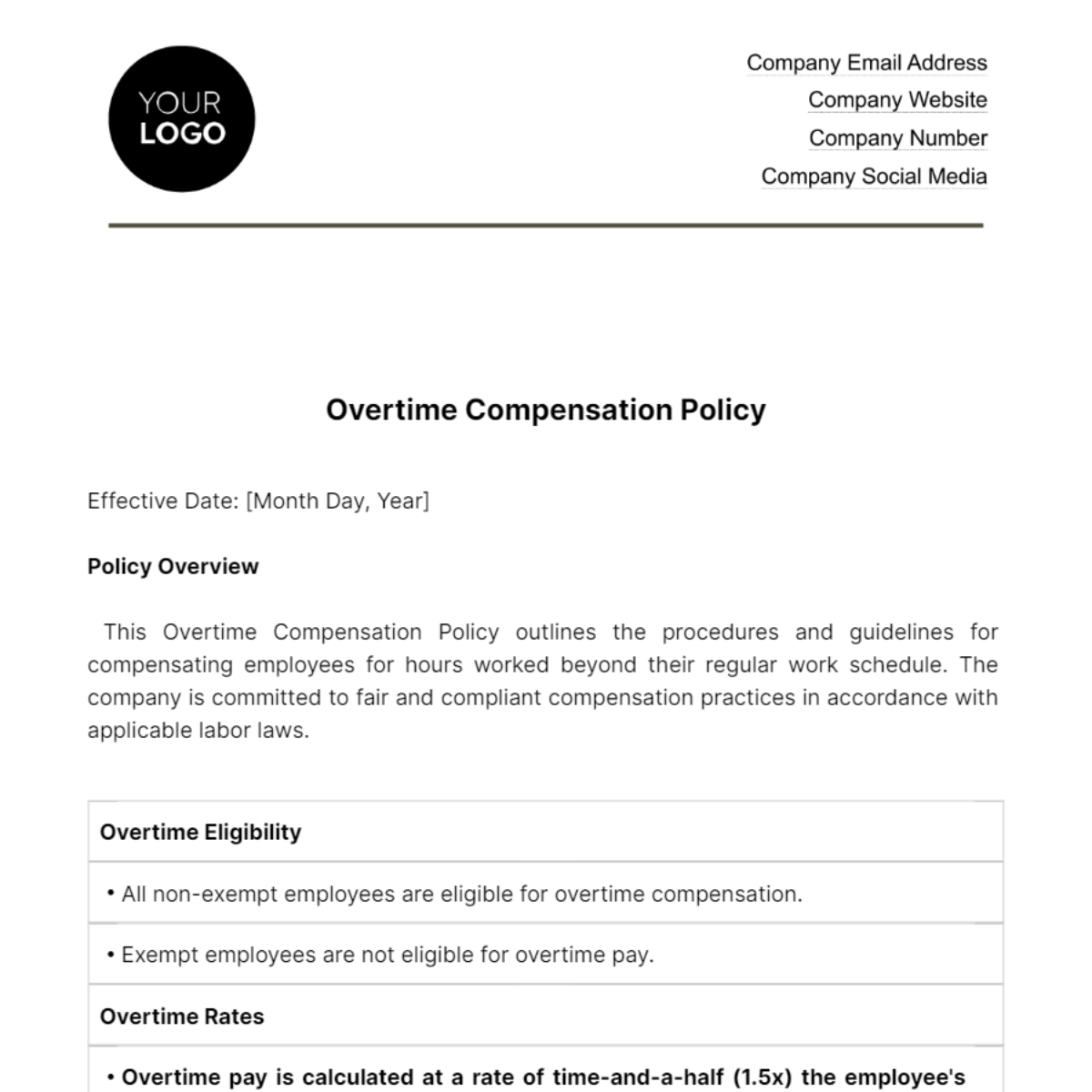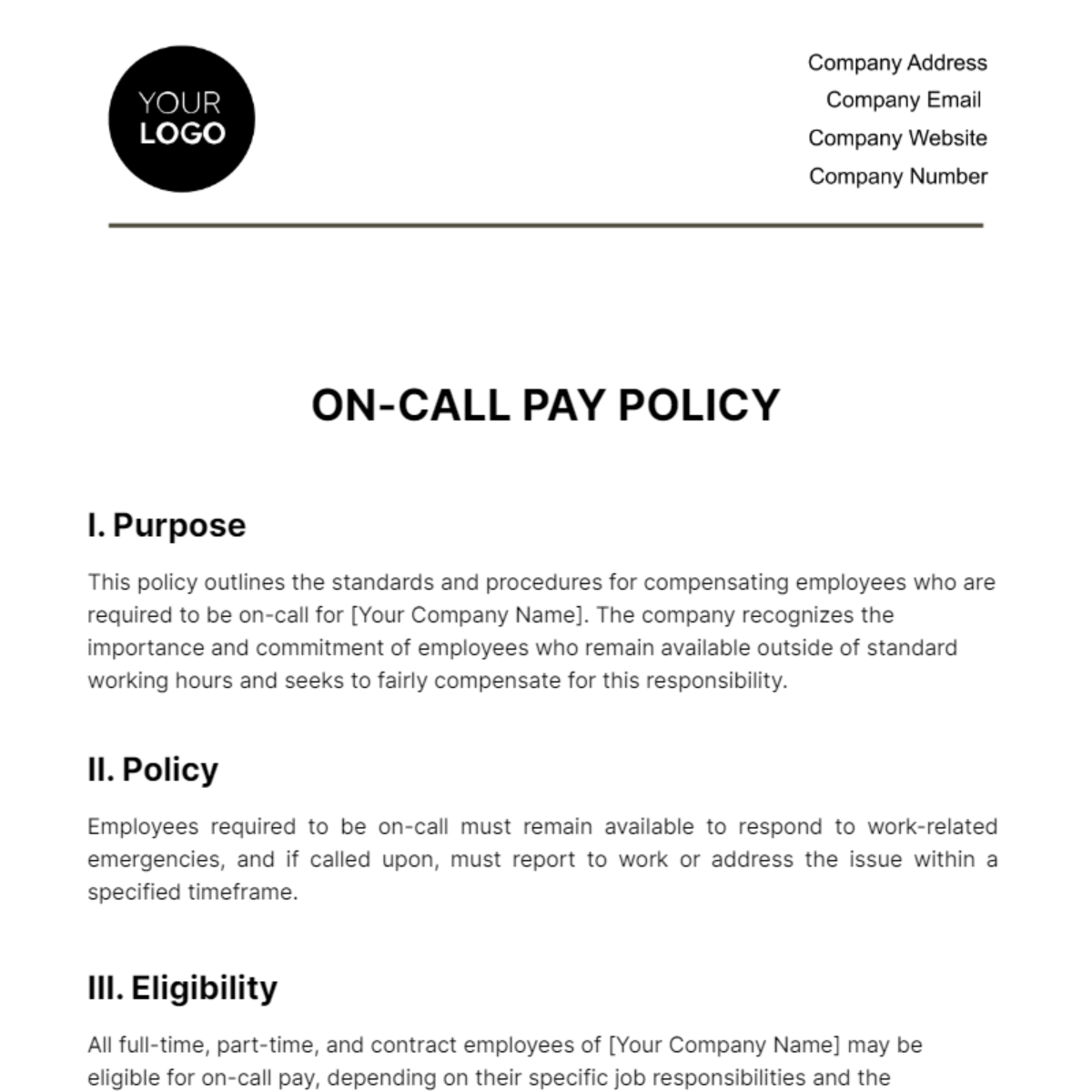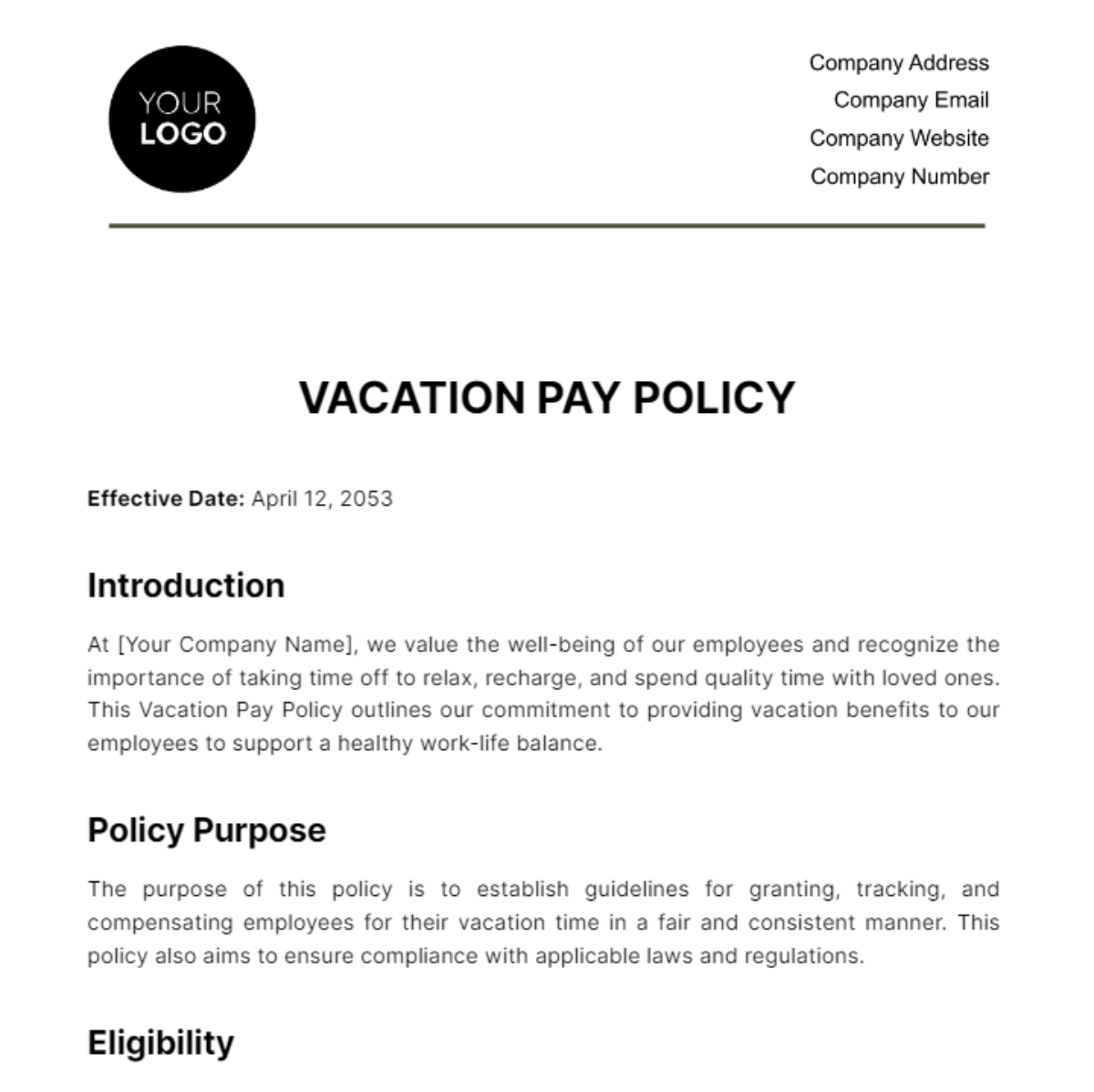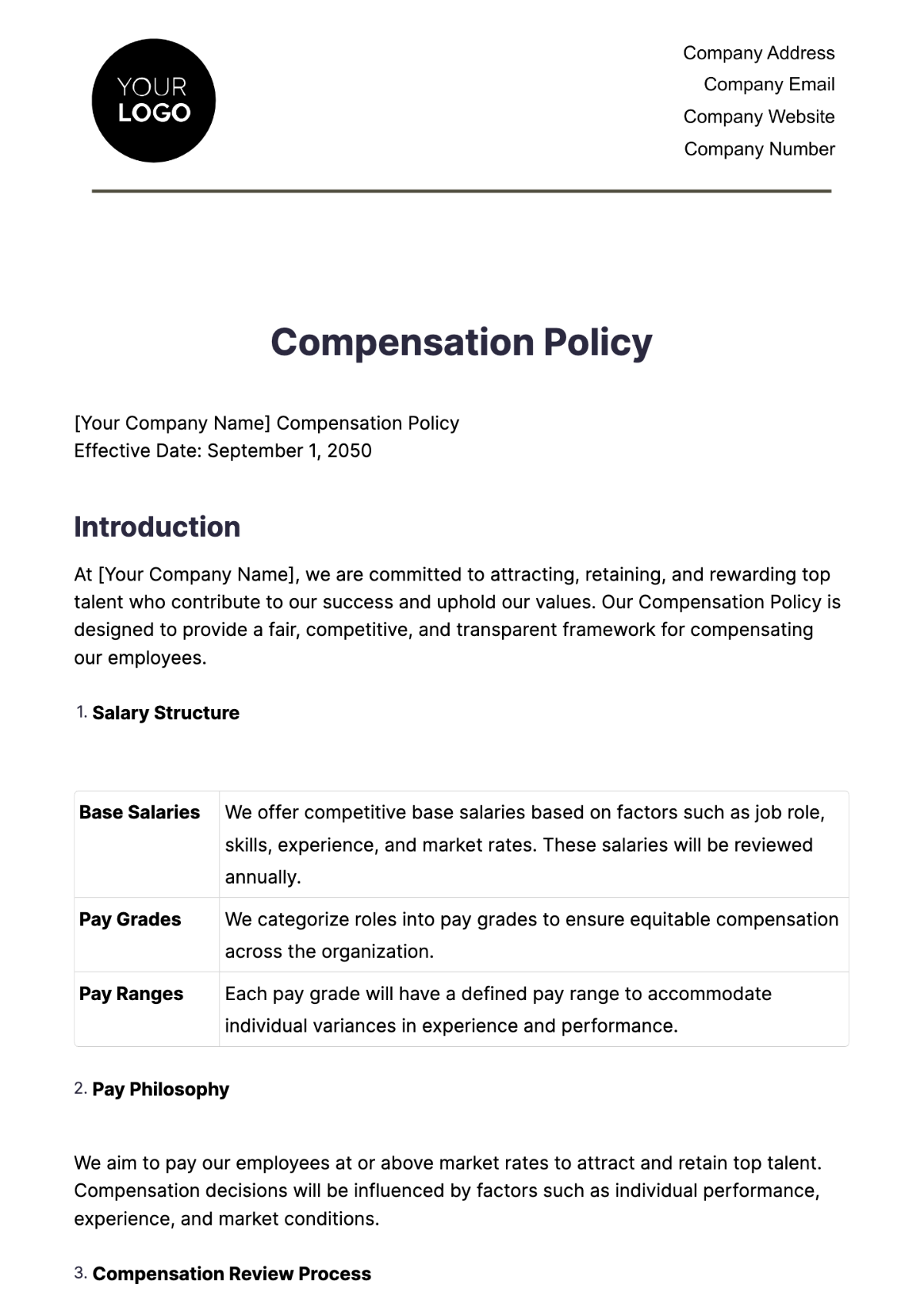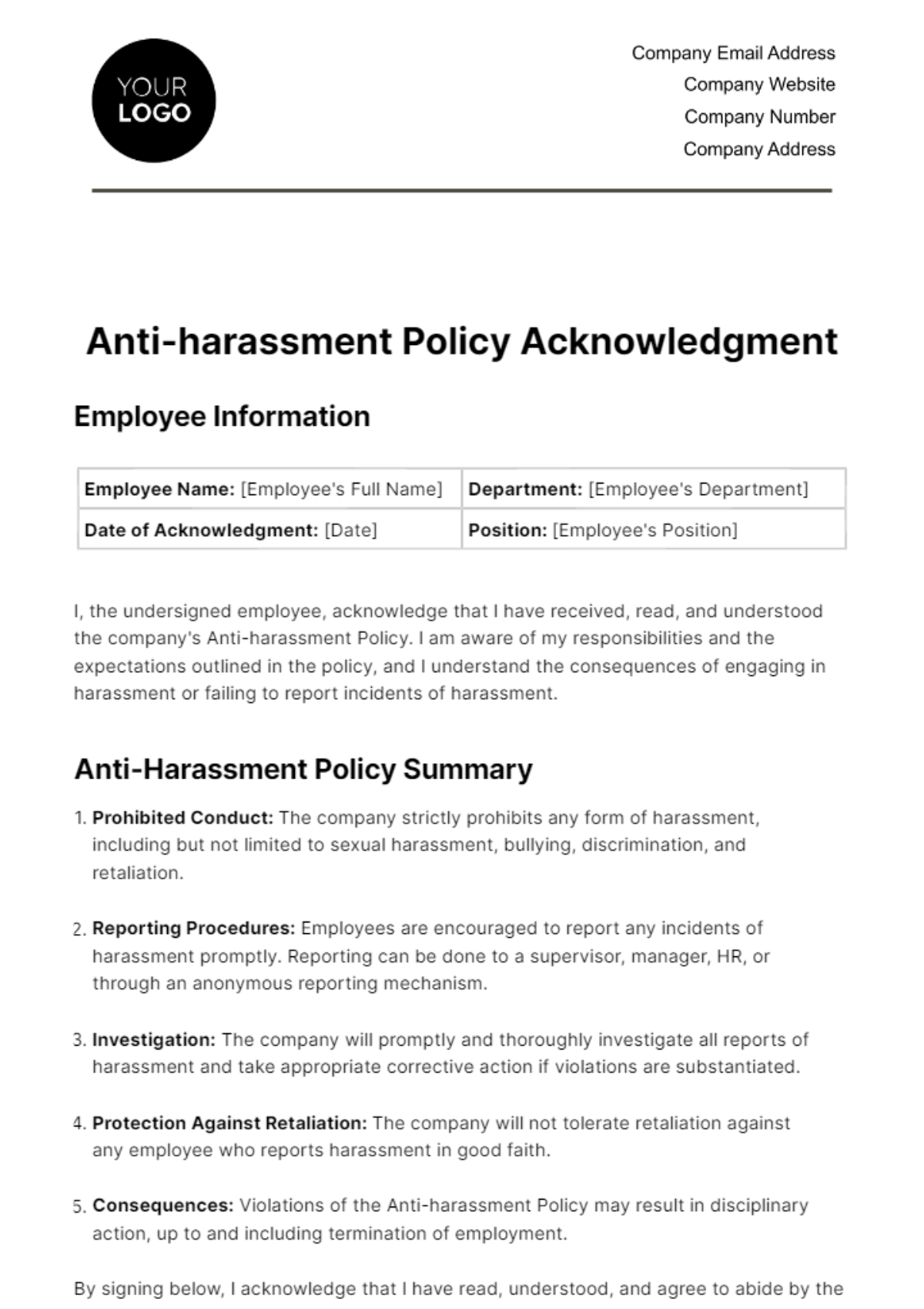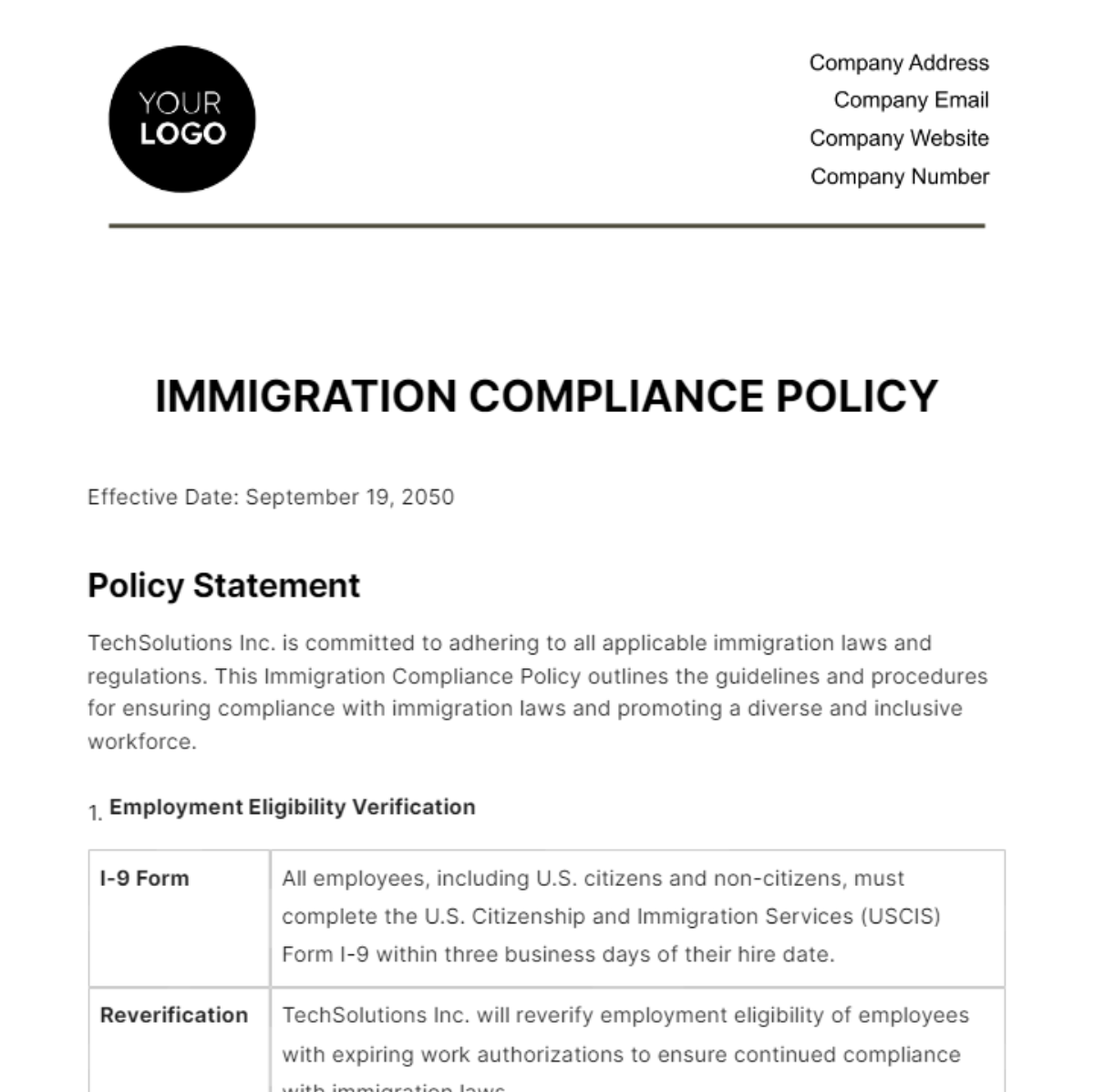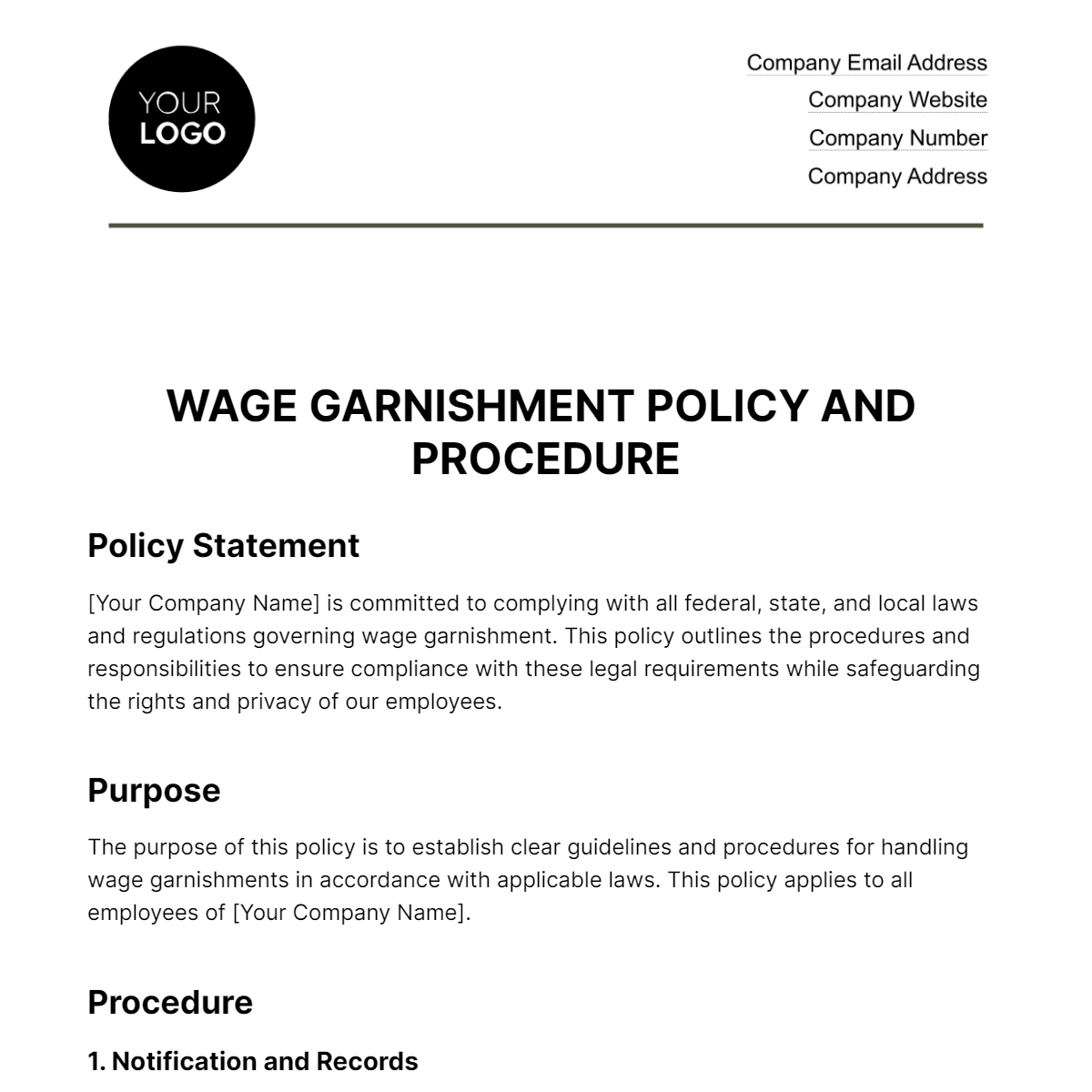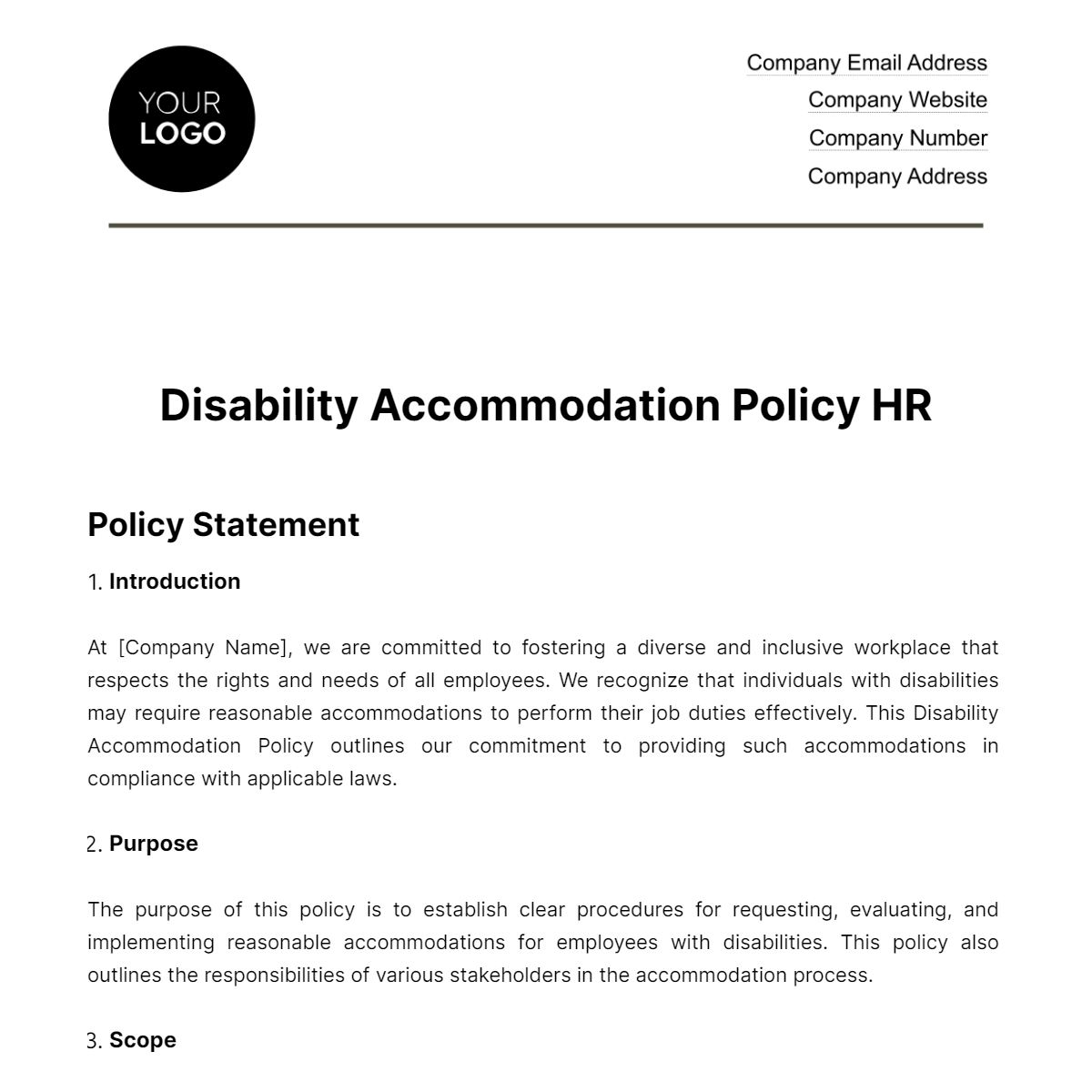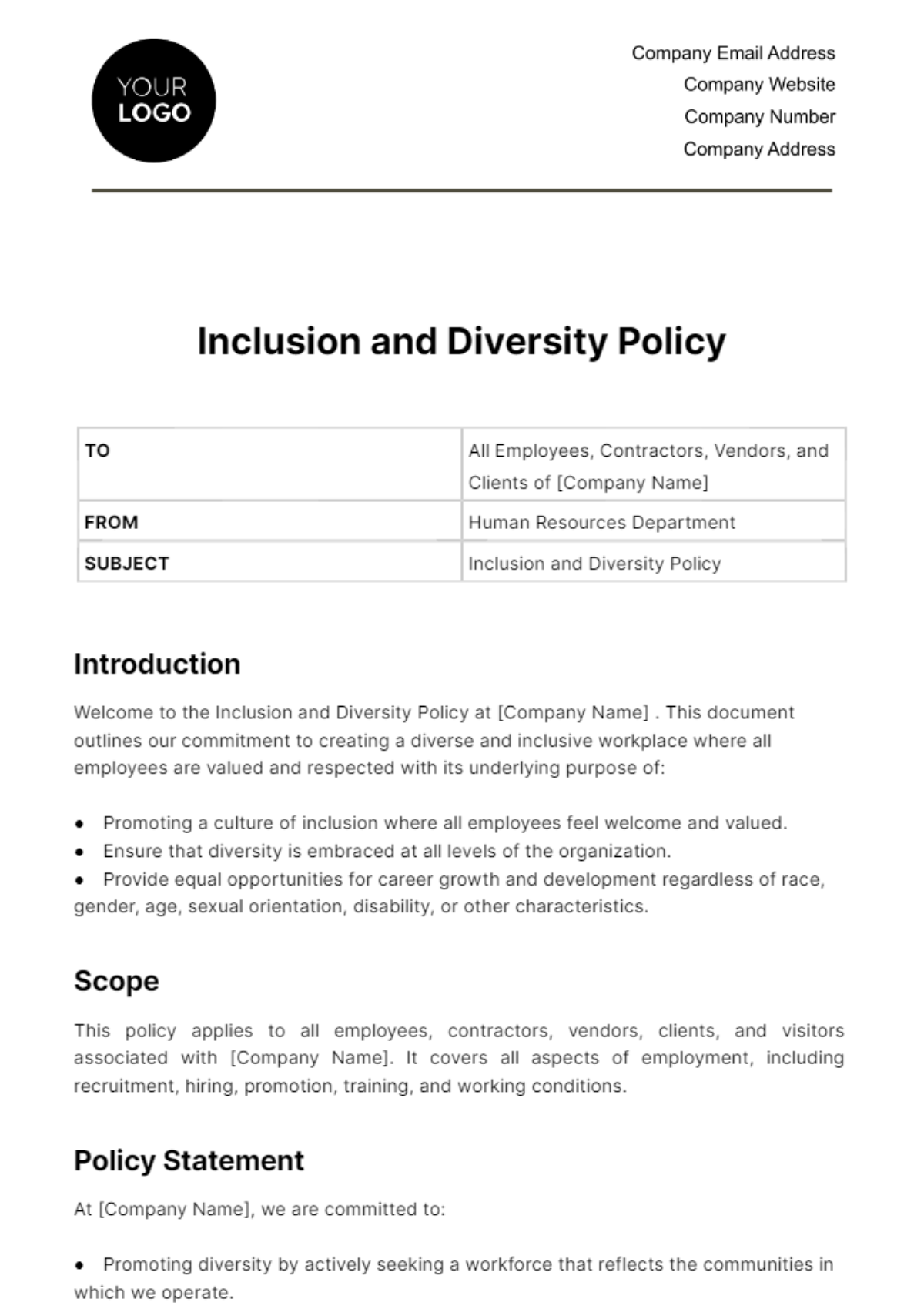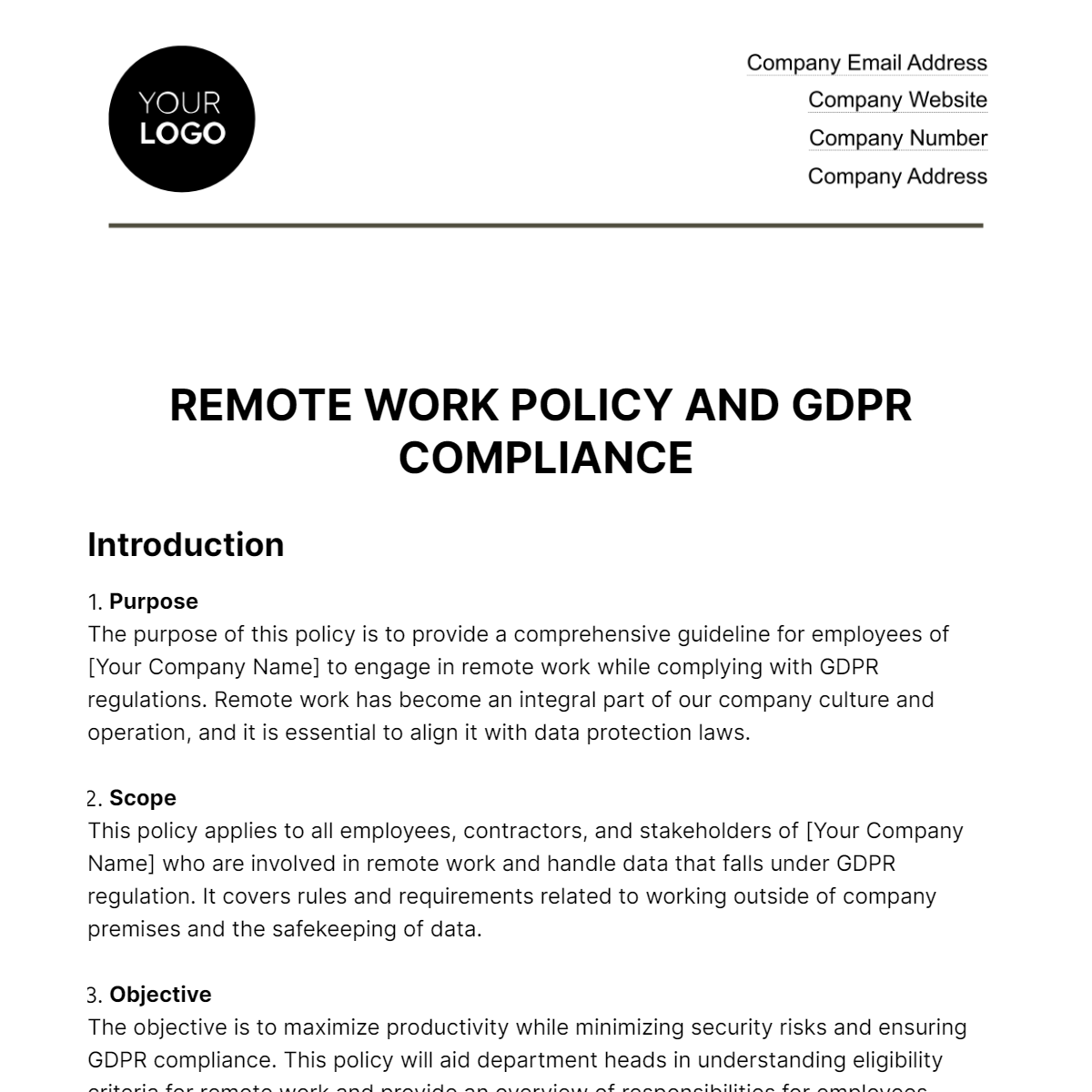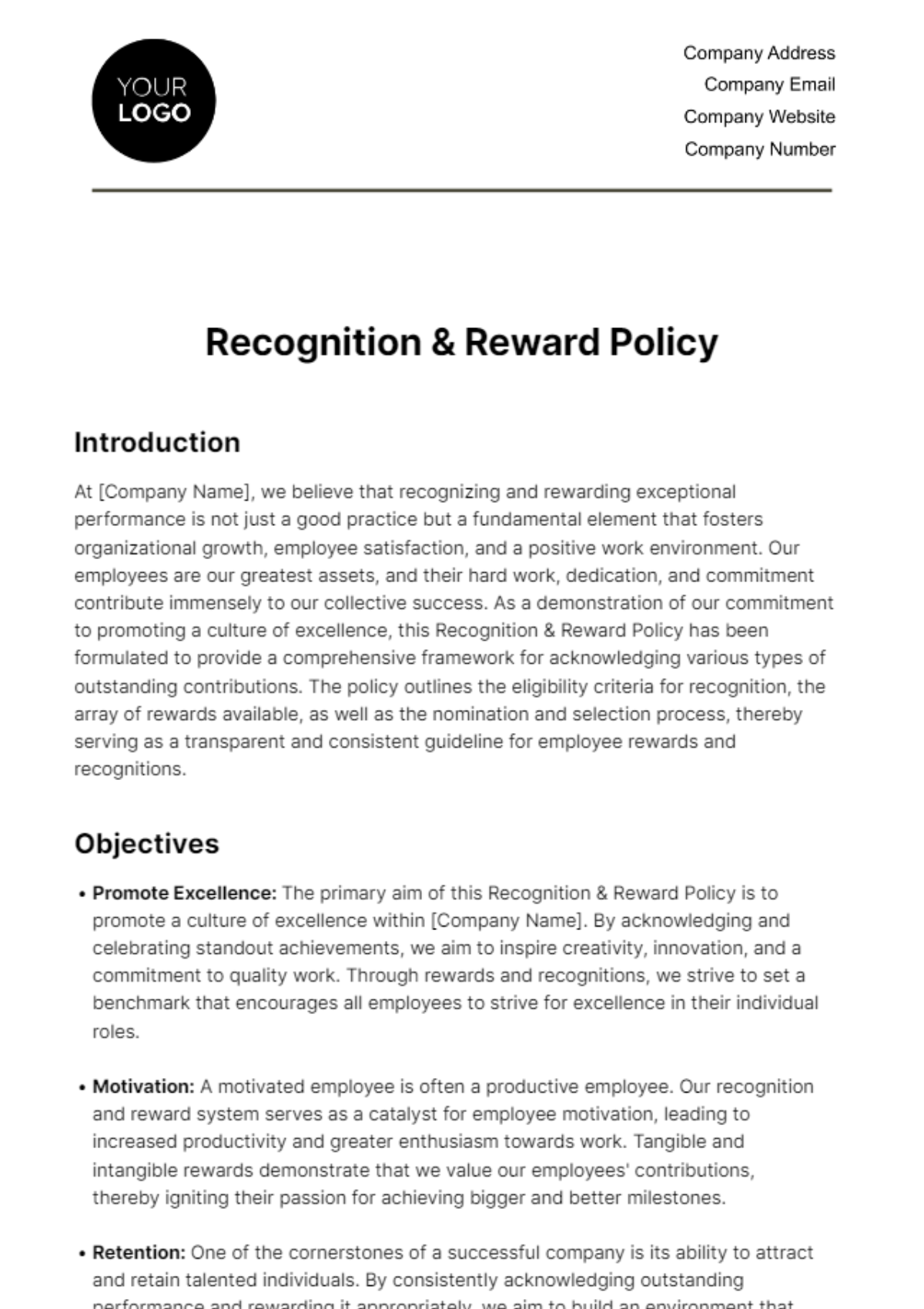Workers' Compensation Policy
Effective Date: [Month Day, Year]
Policy Statement
[Your Company Name] is committed to ensuring the health, safety, and well-being of its employees. This Workers' Compensation Policy outlines our approach to workers' compensation benefits, reporting procedures, and the responsibilities of both employees and the company in the event of a workplace injury or illness.
Purpose
The purpose of this policy is to establish guidelines for workers' compensation within [Your Company Name]. This policy outlines the procedures for reporting workplace injuries or illnesses, seeking medical treatment, and filing workers' compensation claims to provide appropriate benefits to eligible employees.
Coverage
This policy applies to all employees of [Your Company Name], including full-time, part-time, temporary, and contract employees, as well as interns and volunteers. It covers all employees working within the United States.
Workers' Compensation Benefits
a. Eligibility
Employees who suffer work-related injuries or illnesses are eligible for workers' compensation benefits in accordance with state and federal laws. To be eligible for benefits, the injury or illness must have occurred within the course and scope of employment.
b. Benefits Provided
Workers' compensation benefits may include:
Medical treatment, including doctor visits, hospitalization, surgery, and prescription medications related to the work-related injury or illness.
Temporary disability benefits to compensate for lost wages during the recovery period.
Permanent disability benefits in the case of a permanent impairment resulting from work-related injury or illness.
Vocational rehabilitation services if necessary to help employees return to suitable employment.
c. Exclusions
Workers' compensation benefits do not cover injuries or illnesses resulting from:
Intentional self-inflicted harm.
Violation of company policies or engaging in illegal activities while at work.
Injuries or illnesses that occur while not performing job-related duties.
Reporting Workplace Injuries or Illnesses
a. Immediate Reporting
Employees who sustain a work-related injury or illness must report it to their supervisor or manager immediately, regardless of the severity of the injury. Failure to report an injury promptly may jeopardize an employee's eligibility for workers' compensation benefits.
b. Completing an Incident Report
Upon reporting an injury, employees must complete an incident report provided by the company. This report should include details of the injury, how it occurred, and any witnesses. The incident report must be submitted within 5 days of the injury.
c. Medical Attention
Employees requiring immediate medical attention should seek treatment at the nearest medical facility. The company will provide information about approved healthcare providers for ongoing treatment.
Workers' Compensation Claims
a. Filing a Claim
Once an incident report has been submitted, the company's designated workers' compensation administrator will assist the employee in filing a workers' compensation claim with the appropriate state agency. All necessary paperwork and documentation will be provided to the employee.
b. Cooperation
Employees are expected to cooperate fully in the workers' compensation claim process, including providing accurate information, attending medical evaluations, and adhering to prescribed treatment plans.
Return to Work
a. Modified Duty
If medically appropriate and feasible, [Your Company Name] may offer modified or light-duty assignments to employees recovering from work-related injuries or illnesses. This may be part of a return-to-work plan to facilitate the employee's transition back to regular job duties.
b. Accommodation
The company will make reasonable accommodations for employees with disabilities resulting from work-related injuries or illnesses, in accordance with applicable laws and regulations.
Confidentiality
All medical and personal information related to workers' compensation claims will be kept confidential to the extent allowed by law. Access to such information will be restricted to individuals involved in the claims process.
Employee Responsibilities
a. Reporting
Employees are responsible for promptly reporting any work-related injuries or illnesses to their supervisor and completing the necessary incident reports.
b. Cooperation
Employees must cooperate with the company and the workers' compensation administrator during the claims process, including providing accurate information and attending medical evaluations.
c. Fraud Prevention
Engaging in fraudulent activities related to workers' compensation, such as misrepresenting the nature or severity of an injury, is strictly prohibited and may result in disciplinary action, including termination, and legal action.
Company Responsibilities
a. Compliance
[Your Company Name] will comply with all state and federal laws regarding workers' compensation, including providing required benefits, reporting injuries, and maintaining appropriate records.
b. Communication
The company will communicate regularly with employees involved in workers' compensation claims to ensure their understanding of the process and to provide updates on the status of their claims.
This policy is subject to change at any time without notice. Employees are encouraged to review the policy periodically and seek clarification from HR if they have any questions.
For any questions or concerns about this Policy, please contact [Your Company Name] at [Your Company Email] or [Your Company Number].
Date of Last Review: [Month Day, Year]
© [Your Company Name], [Year]
